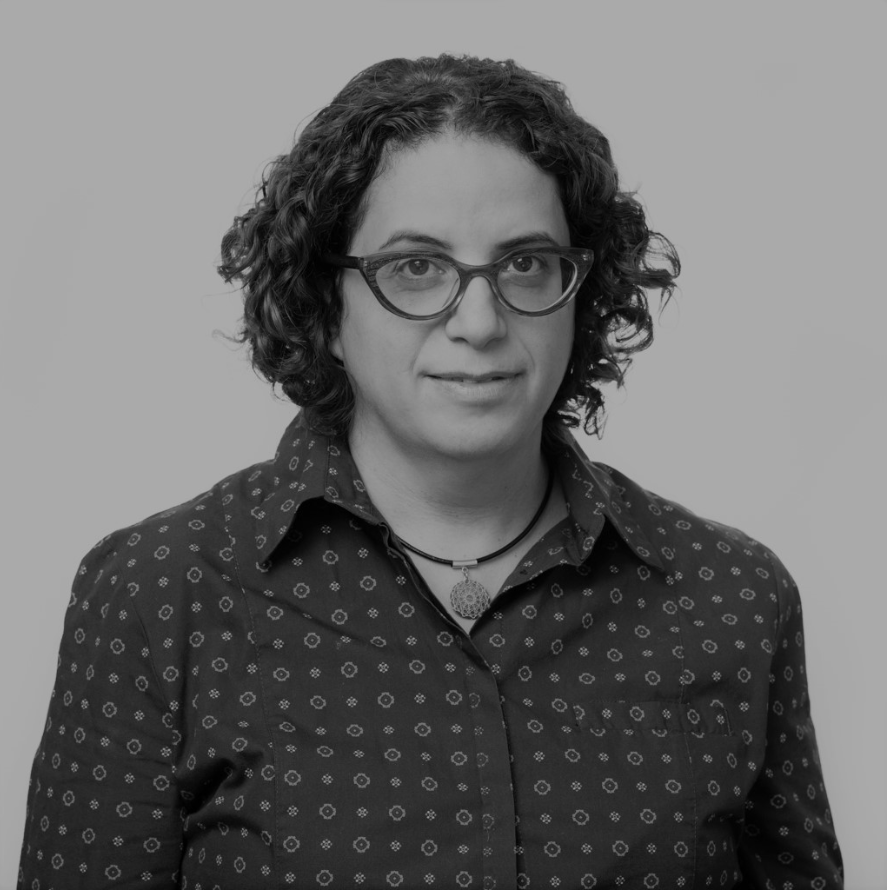
Dganit Ben-Yacov
Dganit Ben-Yacov, BSc in Computer Science, MBA in Healthcare Innovation, CIO of Raanana Municipality in the past 2 years. Before that 23 years career in Amdocs as Vice President, head of engineering and CTO.
Raanana as a smart city – proactive city rather than reactive
Raanana is a city in Hasharon area in Israel. It has approximate of 100,000 citizens. Raanana municipality decided a few years ago to take the lead of smart cities in Israel and published three bids for that, which includes passive and active infrastructure (Fiber Optics), security cameras and command and control system and traffic lights control system.The results after a few years of executing this project are: 40 km of Fiber Optics cables were deployed, connecting 40 city hall buildings and 30 schools. More than 400 security cameras were installed, including analytics capabilities that help to identify cars and people according to certain characteristics. It helped to catch criminals in various occasions. All the traffic lights in the city were connected with Fiber Optic cables which enables the city to connect them to control system that provides alerts on every problem the traffic lights have like a broken lamp. In the future this will enable to change traffic plans according to real time status. There were sensors that were installed: sensors that measured volume level in houses, in the areas that have music concerts. Sensors that measure the height of water under the land in order to identify potential floods in problematic areas before it happens. All those systems are connected to a control system that shows in one place all the alerts and open automatically tickets in the CRM so they will be handled by different teams before citizens identify there is a problem.
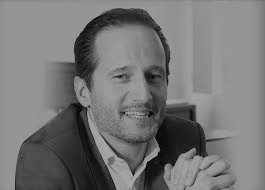
David Boon
David Boon has joined the Brussels Expo Group in 1994 and is responsible for international business development. Prior to this function he was responsible for a portfolio of events at BFE – Brussels Fairs & Exhibitions, which was a subsidiary of the Brussels Expo Group. Prior to that, David worked in various sales and operation roles within the Brussels expo Group. He has a degree in export management. David has been with the Brussels Expo Group for 27 years and is today a Board member of UFI : the Global Association of the Exhibition Industry, in which he is the 1st Vice-Chair for the European Chapter. In the past he was also a Board member of : the International Association of Exhibitions & Events – IAEE, the European Major Exhibition Centers Association – EMECA.
Resilient cities – how do trade fairs fit into their identity?
Trade fairs have always had a city-forming character. Their establishment and development was associated with a growing importance of the city in the national and often international arena. They were often called a window to the world, as their main function was related to international cooperation, prestige, and often testified to more than simply the material status of the city in which they were held. The presence of trade fairs directly led to the development of the tourism industry in the city, encompassing hotels, catering, and trade. The city was attractive to domestic and foreign tourists, which resulted in considerable benefits for its inhabitants. During the last 2 years of the pandemic, the trade fair industry that was one the most significantly impacted, as it relied on face-to-face meetings, which were limited to a necessary minimum worldwide. Its further development was in question. The trade fair market began to shrink as some of the events that have moved over to the Internet during the pandemic do not intend to return to real-life spaces even after the pandemic has passed. Currently, as we are starting to recover from lockdown, trade fairs have to seemingly define their field of activity from the ground up. They can once again become a city-forming factor, provided that they adapt their business model to the current expectations and needs of the environment. They can once again have an impact on cities by protecting them from the effects of the recent crisis.
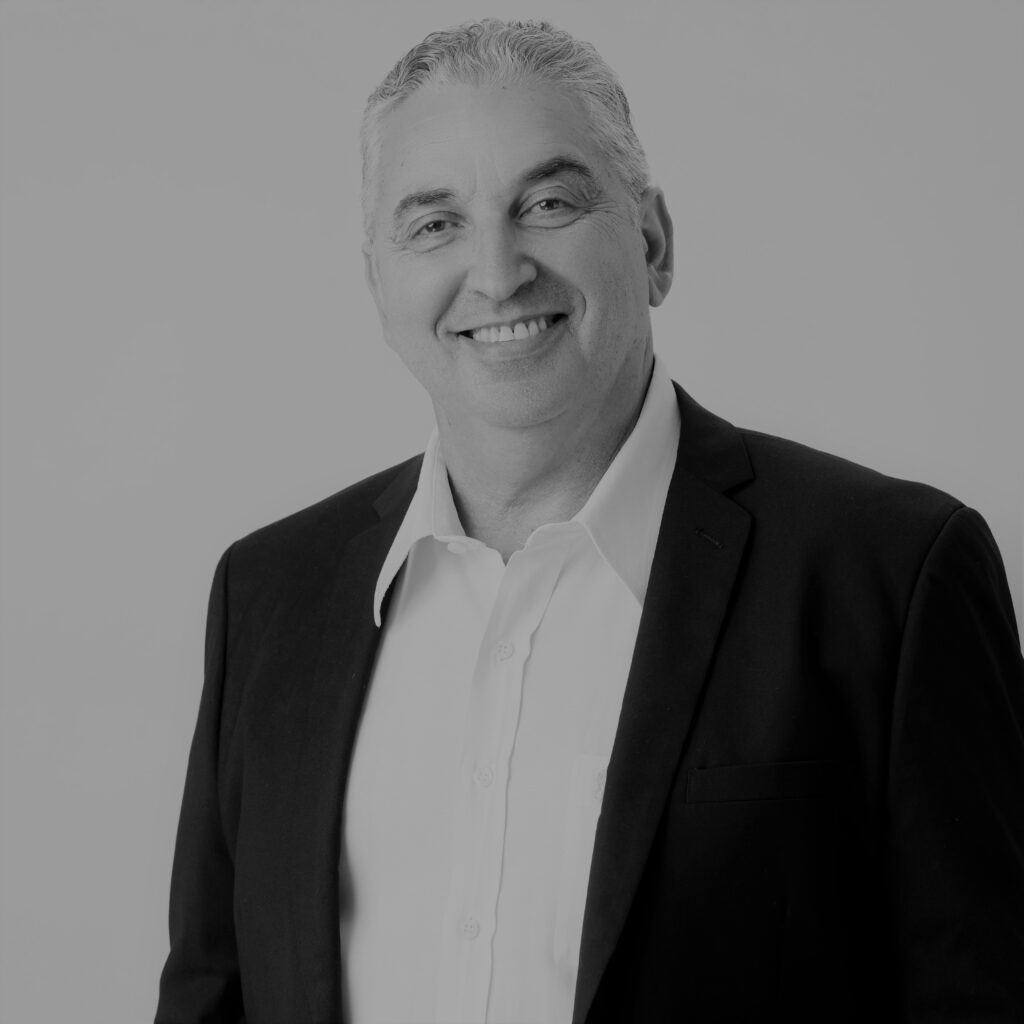
Chaim Broyde
Chaim Broyde, Mayor Of Raanana, aged 64, married with 3 children, was born in Raanana. He has served as Mayor of Raanana since November 2018 and under his leadership the City has reached the highest standards of excellence in all areas of daily life, growth and innovation. Chaim has a B.A. in Business Administration and served in the IDF, reaching the rank of Company Commander. In the Reserves he reached the rank of Lieutenant Colonel, serving as Chief of Staff of the Home Front Command and partnered in writing the Unit doctrine. Chaim Broyde was the youngest journalist for Yedioth Ahronoth, Israel’s leading newspaper. He went on to serve as Yedioth Ahronoth’s Chief of Reporting. He was a member of the founding team of Radio 90, one of the leading networks, served as a consultant to the Second Television and Radio Authority and as a member of the National Union of Israeli Journalists.
„Lively, diverse, intense cities contain the seeds of their own regenaration – Jane Jacobs, The Death and Life Great American Cities.”
Where does the strength of our cities come from?
The crisis and related restrictions have forced city authorities to accelerate the implementation of innovations and solutions, including digitization, land use, public service delivery, among others. They caused a more careful look at environmental protection and accessibility to blue-green infrastructure. The drastically reduced mobility made the pandemic a test of the potential within cities, in their layout, in their intangible resources, in the businesses and organizations located within them, but above all – in their people. It has sparked individual resourcefulness in the areas of gainful employment, child and youth education, leisure activities, and personal development. Life based on face-to-face contacts had to be suddenly reorganized, meetings and travel had to be reduced, and at times, so did industrial production. The time of the pandemic also verified the functional completeness of the neighborhoods in which we live and the homes in which we stay. Finally, this time was a period of intense and often innovative self-help activities, in which the Internet and mobile technologies played a significant role. Which cities did best to survive this period and what factors made the urban fabric function properly? Wherein lies the strength of cities’ resilience to crises of various kinds?
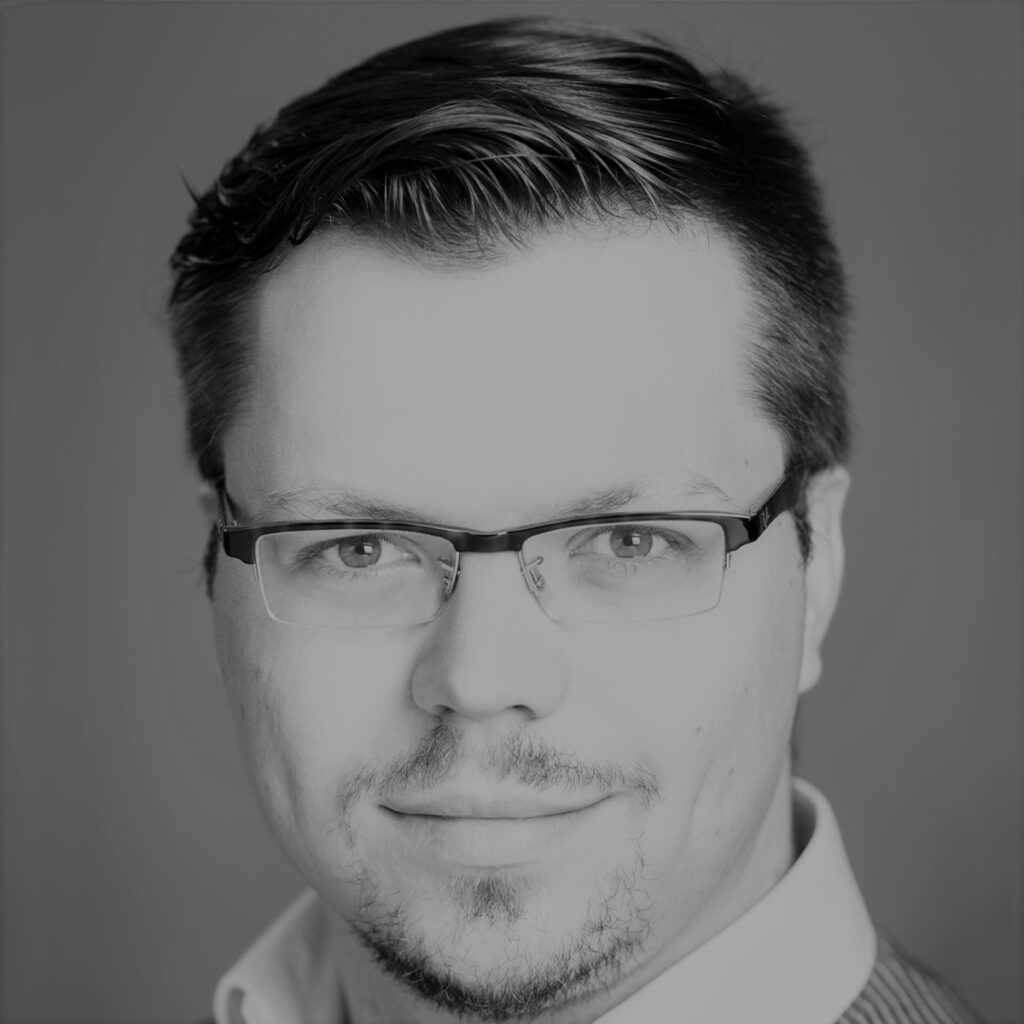
Artur Celiński
Artur Celiński, co-founder and deputy editor-in-chief of “Magazyn Miasta” („Cities magazine”), supports the development of social activities and the sustainability of municipal investments as part of the “City DNA” program; author of podcasts – including the “city-feeling” project; co-creator of “Międzymieście” („Between-city”); public life commentator, university lecturer, city activist and trainer.
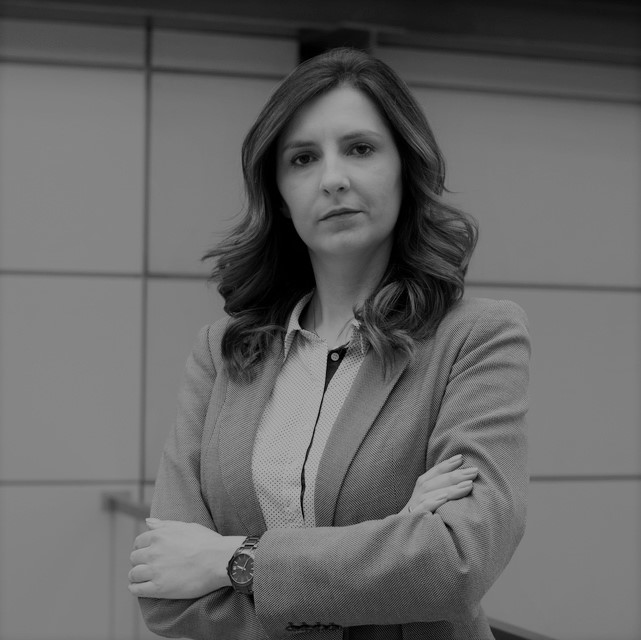
Marta Cudziło
Marta Cudziło, Head of Logistics Centre in Łukasiewicz- Institute of Logistics and Warehousing in Poznan. For over 15 years, as a Project Manager or main contractor she has been carrying out consulting projects for business, mainly in the field of distribution network optimization, supporting the area of inventory management, design supply chain structure and optimization of logistic processes. She cooperated with large and MSP companies of various industries, among others for Energa Operator S.A., Gaz-System S.A., Linpack Packaging, Grupa Żywiec, Leroy Merlin Sp. z o.o., NEUCA S.A., PGF S.A.., Media Markt. Apart from logistics consultancy, for several years, she has also implemented R&D projects co-financed by the European Union consisting in researching new trends and creating innovative solutions supporting logistics in Europe (among others RealBridge, Modulushca, LogiCon). Graduated from the Faculty of Computer Science and Management. She has also worked with the Poznan School of Logistics, leading classes in controlling logistics, forecasting and simulation. The author or co-author of scientific anc specialist articles In area of logistics and supply chain optimization.
IoT at the service of urban mobility
Urban mobility during the pandemic, despite a significant decrease in traffic in city centers, did not change in freight transport. Couriers continued to deliver packages, there were even more of them, suppliers carried out deliveries to stores. “Freight element” of urban mobility undoubtedly requires intervention and support of new solutions based on innovative technologies such as IoT. The presentation will discuss examples of technologies planned for implementation or already implemented in Polish and European cities. The idea of consolidation hubs, which can also take the form of mobile hubs, self-sufficient in energy and integrated with vehicles, will be presented. The increasingly common cargo bikes providing efficient and emission free last mile deliveries and drones that support parcel deliveries in city centers just as efficiently will be shown. The concept of smart returnable packaging, equipped with communication and sensory modules to enable tracking and reuse, will be discussed. The benefits of using intelligent unloading bays will also be presented, based on a pilot implementation carried out in two Polish cities. All the discussed solutions are developed by Łukasiewicz-ILiM in cooperation with EiT Urban Mobility, an organisation that acts to accelerate positive change on mobility to make urban spaces more liveable.
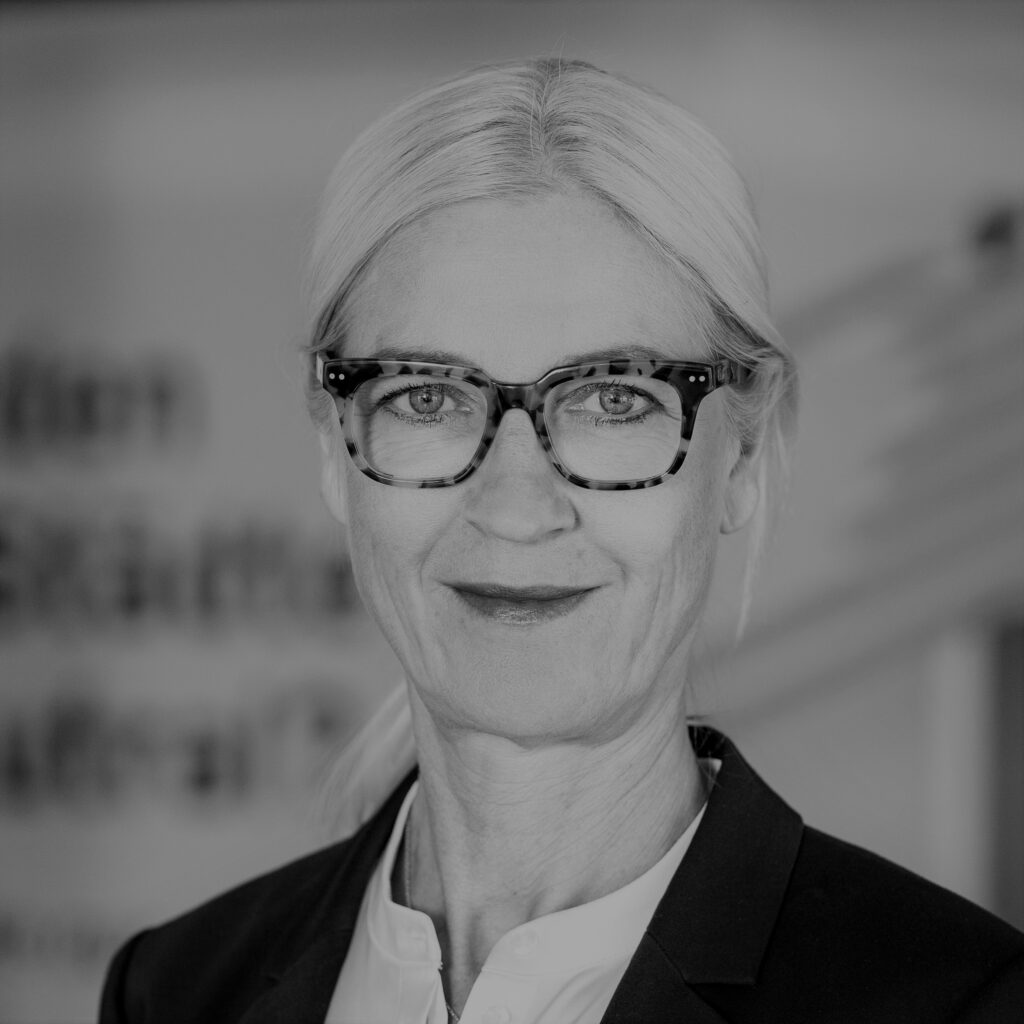
Sabine de Buhr
Sabine de Buhr works as head of Urban Planning at IBA Hamburg GmbH that develops sustainable districts in the city of Hamburg. Sabine de Buhr is responsible for the quality of planning across all phases of the development of the site. The phases cover all areas from competitive submissions right through to property marketing.
Oberbillwerder – Hamburg’s new district
Oberbillwerder is going to be developed as a new district within the City of Hamburg. The size of Oberbillwerder cover 114 ha, 7000 units and 15.000 new inhabitants. The presentation will focus on the sustainable organisation of mobility. Less cars, more space for pedestrian and bicycles and public streets with no parking along the sides.
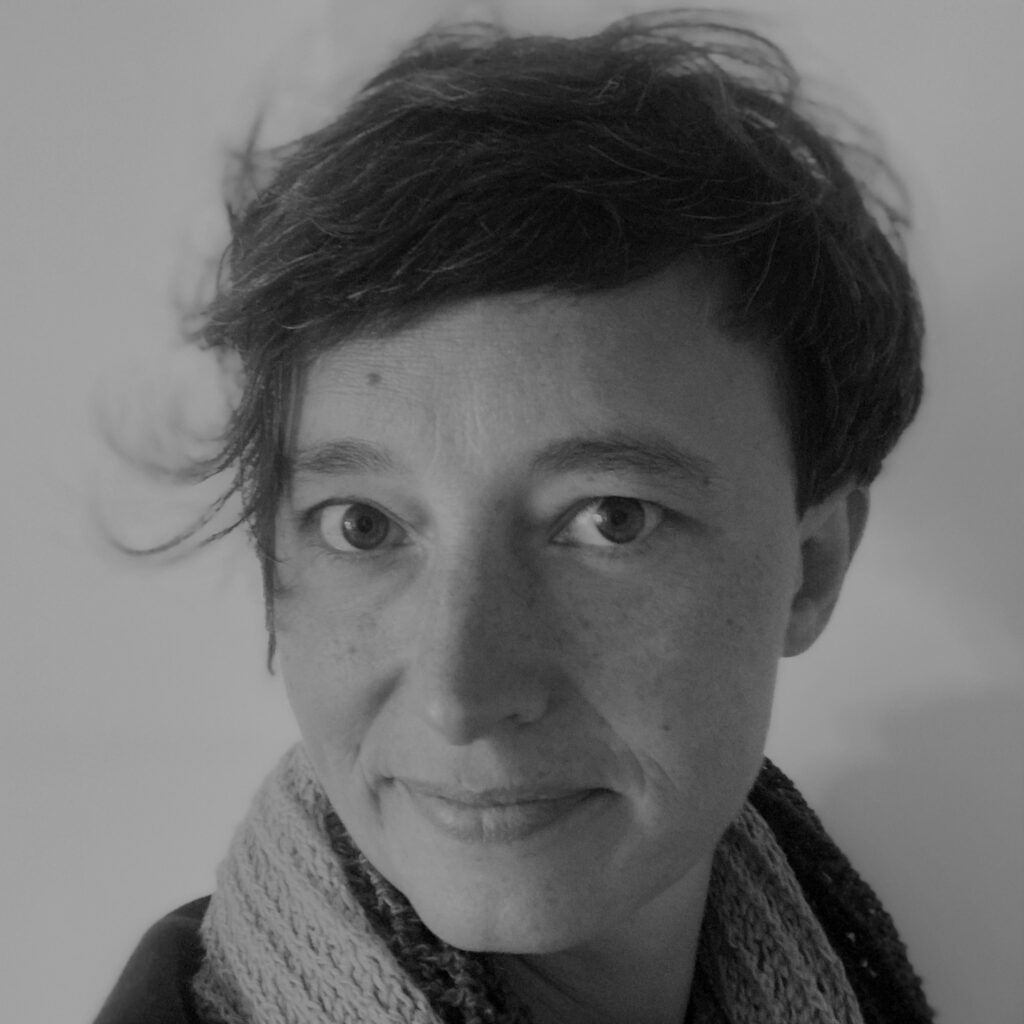
Anna Domaradzka
Dr Anna Domaradzka, sociologist, Assistant Professor and Director at Robert Zajonc Institute for Social Studies, University of Warsaw, head of the Civil City Lab. She specializes in intersectional and international comparative research in the areas of urban sociology, civil society and social movements, sociology of science and gender. She leads several international projects and initiatives concerning urban cohesion, quality of life, cultural heritage, civil society, social entrepreneurship and welfare state issues.
Wanting things different. Self-imposed restraint as a path to sustainability in cities?
The debate will be taken by people associated with art, design, and social research, who support the slowdown, both in a personal and urban aspect. Mindfulness, weaving obligations, spending time with one another and closer relations are confronted with with competition, hyperconsumption, modern acceleration, or the global consumption of raw materials. During the debate, we will talk together about what it actually means that the city is developing and how we can detect it. We will also consider what we see as an opportunity to break such thinking about the development of cities, which equates them with economic, demographic, spatial or media growth. We will also consider how the popularizing idea of inverted growth could be manifested in Polish cities, and how it can be made not only an element of policies or strategies, but also of everyday habits and desires, building the sensitivity of residents to the goals and needs of personal development and development. cities would not be associated with stimulating consumption. Finally, we will also consider how to take care of urban justice in this utopia.

Joanna Erbel
Will Poland want to fit into a doughnut?
How to raise the standard of living, reduce inequalities while at the same time helping yourself and future generations? Who will be the driving force and who will rather want to put the brakes on the necessary overhaul of Poland?
A society “on the make”, incessantly trying to catch up and aspiring to greater and more widespread prosperity, is reluctant to restrict consumption. People that are distrustful of the state and each other treat the common good with reserve. We will seek answers to the practical dilemmas of doughnut economics at the city and local government level.
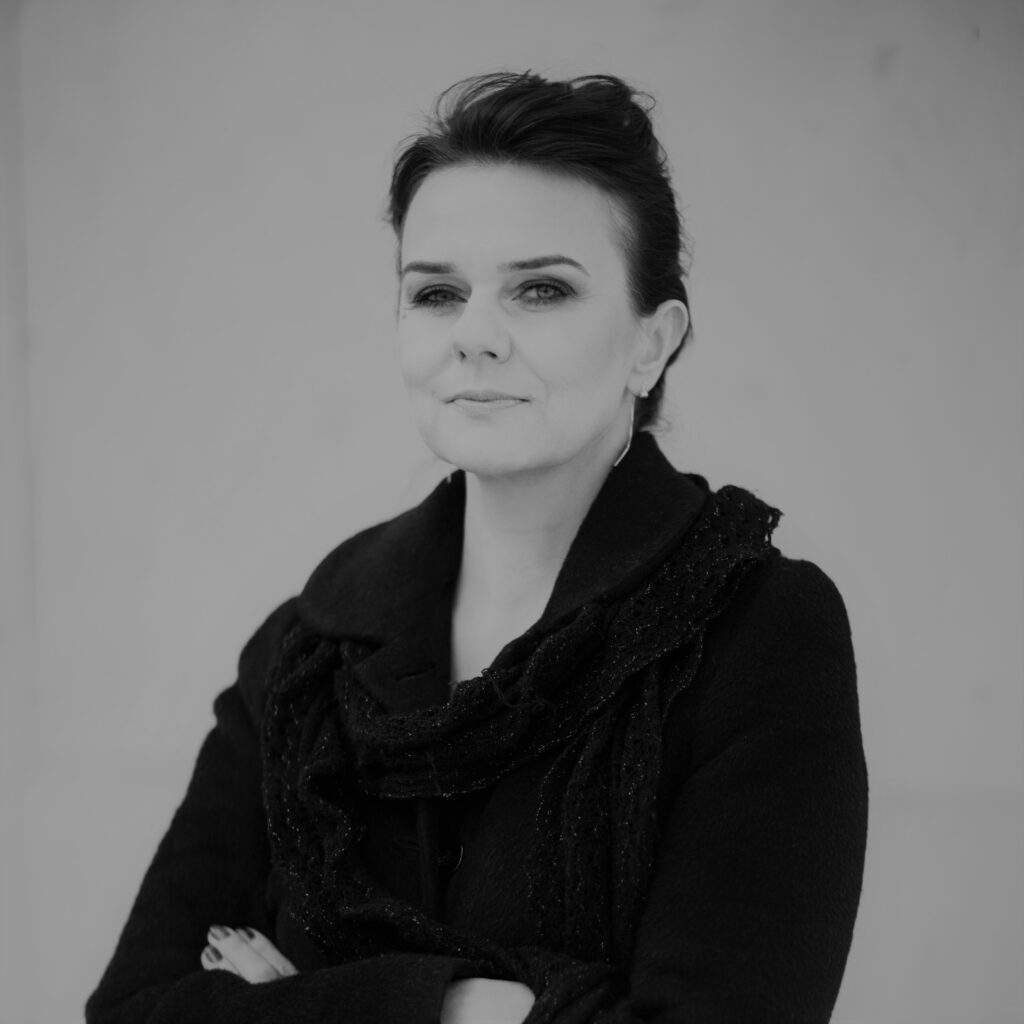
Julia Fiedorczuk
Julia Fiedorczuk is a writer, poet, translator, researcher and a practitioner of ecocriticism, emphasizing the world-making power of literature. Her work foregrounds the relationship between human beings and their planetary environment. She is affiliated at the Institute of English Studies at Warsaw University. Julia Fiedorczuk published short stories collections: „Poranek Marii” (“Maria’s Morning”), „Bliskie kraje” (“Close countries”), novels: „Biała Ofelia” (“White Ophelia”), „Nieważkość” (“Weightlessness”; nominated for the Nike Literary Award) and „Pod Słońcem” (“Under the Sun”) as well as six poetry volumes. The latest of those, „Psalmy” (“Psalms”) was awarded the Wisława Szymborska Prize, Poland’s most prestigious prize for Poetry. She publishes essays as well, including „Cyborg w ogrodzie. Wprowadzenie
do ekokrytyki” („Cyborg in the garden. Introduction to ecocriticism”) and „Ecopoetics” (in collaboration with the Mexican poet Gerardo Beltrán). Julia Fiedorczuk created the program of the School of Ecopoetics at Warsaw’s Institute of Reportage. Julia Fiedorczuk publishes widely in popular media: „Literatura na
świecie”, „Dwutygodnik”, „Tygodnik Powszechny”, „Pismo”, „Przekrój” and monthly magazine „Znak”. She is a columnist of the most popular Polish weekly, „Polityka”. Her writings have been translated into over 20 languages.
Wanting things different. Self-imposed restraint as a path to sustainability in cities?
The debate will be taken by people associated with art, design, and social research, who support the slowdown, both in a personal and urban aspect. Mindfulness, weaving obligations, spending time with one another and closer relations are confronted with with competition, hyperconsumption, modern acceleration, or the global consumption of raw materials. During the debate, we will talk together about what it actually means that the city is developing and how we can detect it. We will also consider what we see as an opportunity to break such thinking about the development of cities, which equates them with economic, demographic, spatial or media growth. We will also consider how the popularizing idea of inverted growth could be manifested in Polish cities, and how it can be made not only an element of policies or strategies, but also of everyday habits and desires, building the sensitivity of residents to the goals and needs of personal development and development. cities would not be associated with stimulating consumption. Finally, we will also consider how to take care of urban justice in this utopia.

Diana Filippova
Diana Filippova is advisor to the Mayor of Paris Anne Hidalgo, a writer, and a politician. She works on matters such as the politics of technology, the 15-minute city, democracy, and human rights. Her latest essay explores the intertwined relationships between politics of power and technology (/Technopower/, Les liens qui libèrent, Paris, 2019). In the past, prior to being a candidate during the Paris 2019 Mayor elections, she had been an entrepreneur and a CEO, the spokeswoman for the French NGO Ouishare, and a public writer and speaker in French leading media. Born in Moscow, she holds a degree from Sciences Po and HEC Paris.
15-minute city
The Mayor of Paris Anne Hidalgo has declared her second mandate’s priority would be to transform Paris into a 15-minute city : a city of proximity, where citizens can find anything they need in less than a few minutes from their homes by bike or on foot. Whilst the vision of bringing more services and relationships to the neighbourhood level has been widely adopted in the past years, the consequences of the COVID pandemic has brought a huge boost to its implementation. This presentation will introduce the basics of this model carved out by Professor Carlos Moreno, as well as and highlight the growing relevance of the 15-minute city in the context of climate change and growing inequalities. The aims and the tools of this transversal programme pushed on top of the urban agenda and applied to the specificities of the Parisian urban structure will also be outlined. Eventually, some examples of ongoing policies will be shared in such fields as culture, local democracy, public space, waste management, security and mobility.

Maciej Frąckowiak
Maciej Frąckowiak – sociologist, doctor of social sciences, researcher of cities and visual culture. Author and editor of texts and scientific and popularizing books on this subject, including the “Architect can be” report prepared jointly with the Bęc Zmiana Foundation, commissioned by BAIPP m.st. Warsaw. Initiator and curator leasing the animated urban space, as well as the debate on it.
In the years 2016-2018 a member of the team coordinating the Very Young Culture program of the National Center of Culture. PhD at Adam Mickiewicz University, Poznan and lecturer School of Form.
Wanting things different. Self-imposed restraint as a path to sustainability in cities?
The debate will be taken by people associated with art, design, and social research, who support the slowdown, both in a personal and urban aspect. Mindfulness, weaving obligations, spending time with one another and closer relations are confronted with with competition, hyperconsumption, modern acceleration, or the global consumption of raw materials. During the debate, we will talk together about what it actually means that the city is developing and how we can detect it. We will also consider what we see as an opportunity to break such thinking about the development of cities, which equates them with economic, demographic, spatial or media growth. We will also consider how the popularizing idea of inverted growth could be manifested in Polish cities, and how it can be made not only an element of policies or strategies, but also of everyday habits and desires, building the sensitivity of residents to the goals and needs of personal development and development. cities would not be associated with stimulating consumption. Finally, we will also consider how to take care of urban justice in this utopia.
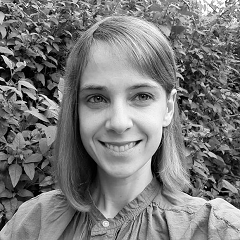
Leonora Grcheva
Leonora Grcheva, Cities & Regions Lead, has joined DEAL to lead our engagement with cities, municipalities and other place-based administrations that are interested in putting Doughnut Economics into practice in their own context. Leonora is an urban planner, researcher and participation practitioner. She has over a decade of experience facilitating engagement with communities, cities and regions globally through her work as an urban planning consultant for UN-Habitat, a city leadership associate for University College London, and a community engagement consultant for built environment projects in the UK. She studied architecture in her home-country Macedonia, holds a Masters in Human Settlement from KU Leuven (Belgium), and a PhD in Urbanism from the IUAV University of Venice (Italy).
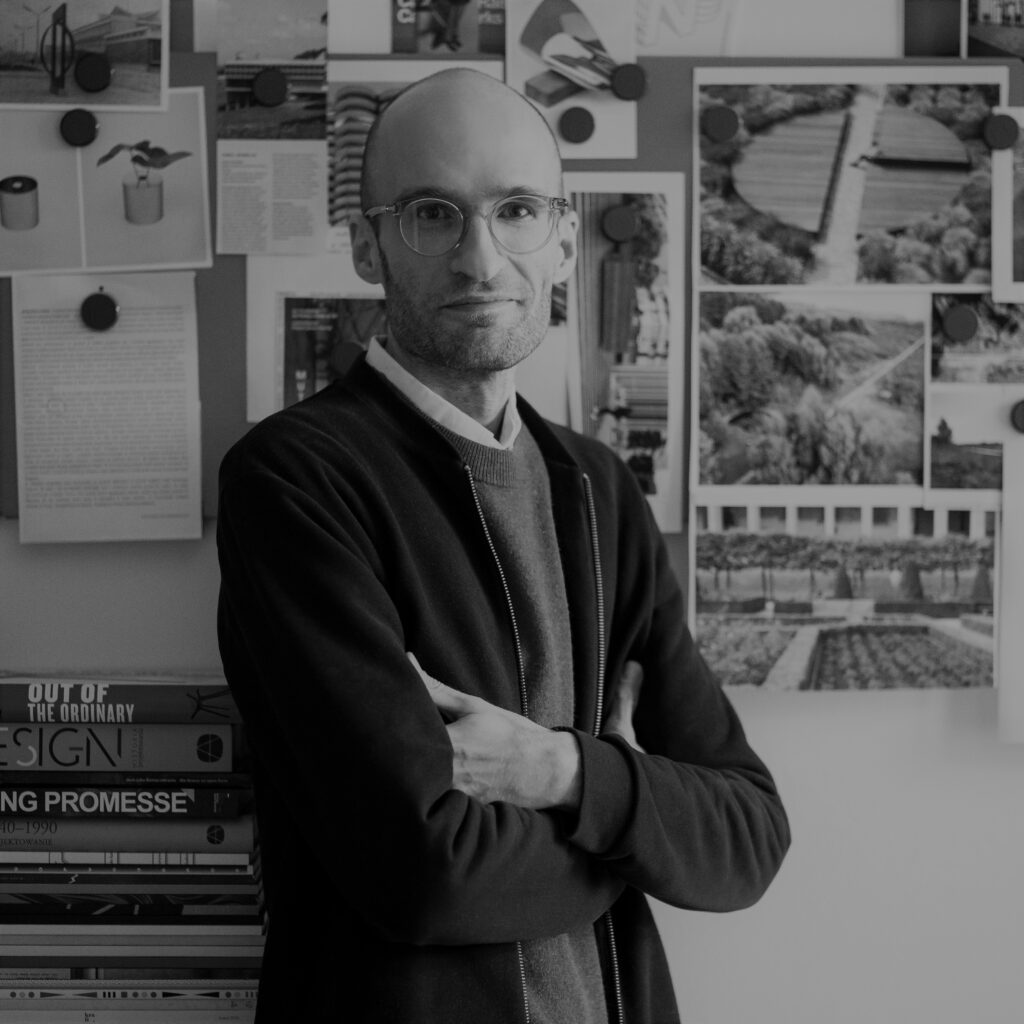
Paweł Grobelny
Designer, lecturer, exhibition curator and specialist in the field of public space design. He heads the Public Space Design Studio at the Faculty of Design of the Academy of Fine Arts in Warsaw. Scholarship holder of the French Government in Paris, Casa de Velazquez – Academie de France in Madrid and Residency Unlimited in New York. His projects are located in public spaces in cities such as Brussels, Budapest, Strasbourg, Shanghai and La Defense business district near Paris. Winner of many international awards, including”Rado Star France – Prix du Public” awarded during the Paris Design Week. Two-time winner of the nationwide “Polska Architektura XXL” award, in the “Polish Landscape” category. Winner of the artistic award of the City of Poznań in 2019. Curator of several dozen exhibitions devoted to design, in particular public space and sustainable design, presented, among others, at the Architecture Center in Paris, the Design Museum in Helsinki, the Architecture Center in Toulouse and the Korea Foundation in Seoul.
Public spaces for local communities
The pandemic strengthened the importance of public space in cities – a safe space but also, during the pandemic, a space appreciated by city dwellers as having impact on physical and mental health. During the pandemic, we began to use public space more consciously. More and more often we not only relaxed in it, but also began to see in it the potential for work, study, participation in culture and meetings with friends. The presentation will be devoted to these new spaces and possibilities of public space.
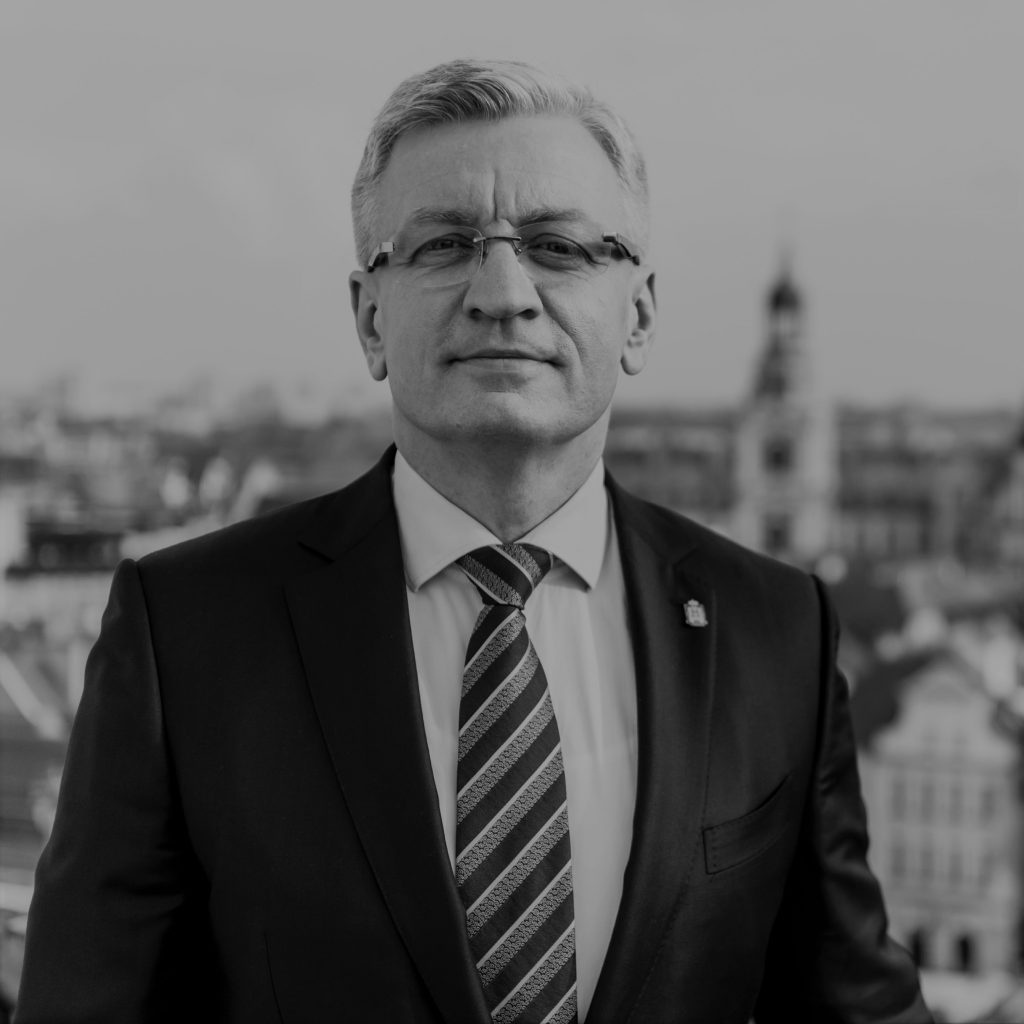
Jacek Jaśkowiak
Jacek Jaśkowiak – Mayor of the City of Poznań since 2014. Social activist, sports activist, former entrepreneur. He graduated from the Faculty of Law of the Adam Mickiewicz University in Poznan, holds a postgraduate diploma in accounting, finances and taxes. A GFPS scholarship recipient at the Bielefeld University in Germany. His priorities in the city management are: implementation of assumptions of the sustainable transport, improvement of investment processes, accessible culture, housing and senior-resident policy, and the revitalisation of the city centre.
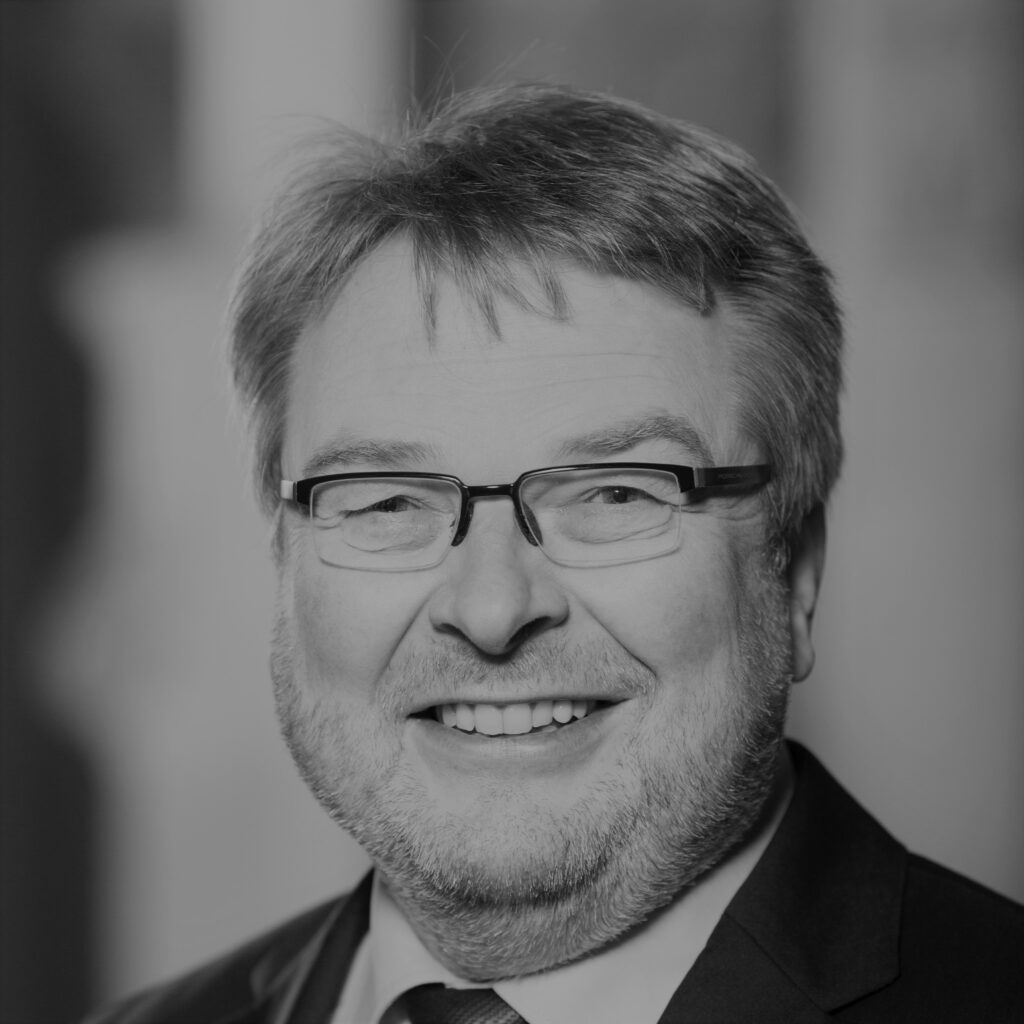
Thomas Hermann
Thomas Hermann has been a Deputy Mayor of Hannover and the Chairman of the City Council since 2014. He is also an adviser for civic commitment and self-help in the Federal State of Lower Saxony’s Ministry for Social Affairs. He was also a research associate at the Institute for Political Science of Hannover University in 1987-1997.
„Lively, diverse, intense cities contain the seeds of their own regenaration – Jane Jacobs, The Death and Life Great American Cities.”
Where does the strength of our cities come from?
The crisis and related restrictions have forced city authorities to accelerate the implementation of innovations and solutions, including digitization, land use, public service delivery, among others. They caused a more careful look at environmental protection and accessibility to blue-green infrastructure. The drastically reduced mobility made the pandemic a test of the potential within cities, in their layout, in their intangible resources, in the businesses and organizations located within them, but above all – in their people. It has sparked individual resourcefulness in the areas of gainful employment, child and youth education, leisure activities, and personal development. Life based on face-to-face contacts had to be suddenly reorganized, meetings and travel had to be reduced, and at times, so did industrial production. The time of the pandemic also verified the functional completeness of the neighborhoods in which we live and the homes in which we stay. Finally, this time was a period of intense and often innovative self-help activities, in which the Internet and mobile technologies played a significant role. Which cities did best to survive this period and what factors made the urban fabric function properly? Wherein lies the strength of cities’ resilience to crises of various kinds?
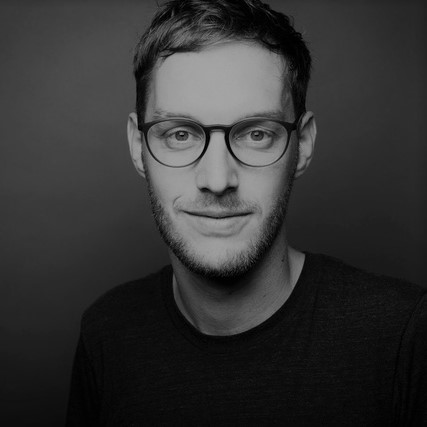
Georg Hubmann
Georg Hubmann is a research assistant and doctoral candidate at the Chair for Urban Design and Sustainable Urban Planning at TU Berlin. He is also a member of the collective Circular Berlin, an organisation that is reshaping Berlin towards a circular city. His main interest lies in the spatial implications of the Circular Economy. Georg’s work has a focus on urban metabolism and the political ecology of space. He holds a M.Sc in urban design from TU Berlin and a M.Arch from Tongji University Shanghai. He was leading several projects on community participation in Berlin and worked on climate action plans with districts and cities around Europe (i.a. London, Paris, Utrecht, Helsinki, Malmö, Copenhagen, Lisbon, Valencia).
Urban Circularity
Cities will continue to expand rapidly and already today account for about 75% of the world’s CO2 emissions. How they are designed and how they operate significantly affects the warming of the planet and impacts the health of communities and ecosystems. As part of their sustainability efforts, they are increasingly turning their attention to the imaginary of a circular economy that implies designing out waste and pollution from their metabolisms. However, the transition to circular urban systems has barely taken place. In his presentation, Georg gives an insight into findings of his latest research on urban circularity by suggesting actions for implementation. He also reports from the transformation processes in Berlin that have a strong focus on bottom-up mobilisation and community engagement. For example, in a period of less than two years more than 150 different organisations have been co-creating the circular economy agenda in the city while there is still a lack of a comprehensive plan for it.

Ronni Kahn
Ronni Kahn AO is a social entrepreneur and founder of food rescue charity OzHarvest. Ronni is a passionate advocate and activist renowned for disrupting the food waste landscape in Australia. She appears regularly in national media, serves in an advisory capacity to government and is a sought after keynote speaker. Her mission to fight food waste and feed hungry people is supported by some of the world’s finest chefs. Ronni is an Officer of the Order of Australia (AO) and was named Australian Local Hero of the Year. Her journey is the subject of a feature film, Food Fighter and her memoir; A Repurposed Life has recently been published.

Elżbieta Jabłońska
Wanting things different. Self-imposed restraint as a path to sustainability in cities?
The debate will be taken by people associated with art, design, and social research, who support the slowdown, both in a personal and urban aspect. Mindfulness, weaving obligations, spending time with one another and closer relations are confronted with with competition, hyperconsumption, modern acceleration, or the global consumption of raw materials. During the debate, we will talk together about what it actually means that the city is developing and how we can detect it. We will also consider what we see as an opportunity to break such thinking about the development of cities, which equates them with economic, demographic, spatial or media growth. We will also consider how the popularizing idea of inverted growth could be manifested in Polish cities, and how it can be made not only an element of policies or strategies, but also of everyday habits and desires, building the sensitivity of residents to the goals and needs of personal development and development. cities would not be associated with stimulating consumption. Finally, we will also consider how to take care of urban justice in this utopia.
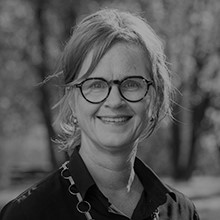
Pia Karlsson
Pia Karlsson has long and relevant experience from high positions in several companies and organisations, both Swedish and global. All these assignments have a couple of distinct things in common; they all include an element of design, leadership and communication. Pia has had the opportunity to be part of developing strong brands such as IKEA, Design House Stockholm and Svenska Dagbladet (the biggest daily newspaper in Sweden). In addition to the skills mentioned above, PR and information has been a common thread throughout Pia’s career. Right before Pias assignment at the City of Stockholm, as the project manager for “Levande Stokholm”, she had the role as COO at Nola Industrier AB with a primary focus on quality and sustainability. This experience Pia certainly can benefit from in her present role, as Nova Industries is a leading player in furniture and environment for public areas.
Levande Stockholm – the purpose and development of the summerstreets and summersquares in Stockholm
Levande Stockholm, which straight translated means Living Stockholm. The meaning and purpose of this project is to make our city more inviting and accessible for people. The focus is summertime, but we even have a smaller project making places more safe in the winter. This presentation is about the background of the project, and how it all started in 2015. I will also tell you about the three different focus areas: design, content and a tool for rebuilding. I will talk about what, how and why, and also share a few good examples from each area. This is a concept of success, appreciated by a majority of our residents.

Tomasz Kobierski
Chairman of the Management Board of Grupa MTP, Chairman of the Council of the Polish Chamber of Exhibition Industry. A graduate of the Department of Management at the University of Economics in Poznań and the Advanced Management Program at IESE Business School in Barcelona. From the beginning of his professional career (from 1998) he has been associated with the Poznań International Fair. He was the director of the International Food Products Fair POLAGRA FOOD, the International Trade Fair of Machines and Tools for the Wood and Furniture Industries DREMA and the International Fair of Components for Furniture Production FURNICA. The next step in his career was the position of the director of a group of products from the agri-food and wood sectors. Since 2007 he has been a member of the Management Board of Grupa MTP as the vice-president, from 2020 – as the president of the management board. Tomasz Kobierski is the chairman of the Supervisory Board of Targi Lublin and the chairman of the organizing committee of the largest horse competition Cavaliada Tour in Poland. He is also member of the Management Board of the Woodworking Machinery, Equipment and Tools Manufacturers Association. In 2020 he assumed the prestigious position of the President of the Council of the Polish Chamber of Exhibition Industry.
Resilient cities – how do trade fairs fit into their identity?
Trade fairs have always had a city-forming character. Their establishment and development was associated with a growing importance of the city in the national and often international arena. They were often called a window to the world, as their main function was related to international cooperation, prestige, and often testified to more than simply the material status of the city in which they were held. The presence of trade fairs directly led to the development of the tourism industry in the city, encompassing hotels, catering, and trade. The city was attractive to domestic and foreign tourists, which resulted in considerable benefits for its inhabitants. During the last 2 years of the pandemic, the trade fair industry that was one the most significantly impacted, as it relied on face-to-face meetings, which were limited to a necessary minimum worldwide. Its further development was in question. The trade fair market began to shrink as some of the events that have moved over to the Internet during the pandemic do not intend to return to real-life spaces even after the pandemic has passed. Currently, as we are starting to recover from lockdown, trade fairs have to seemingly define their field of activity from the ground up. They can once again become a city-forming factor, provided that they adapt their business model to the current expectations and needs of the environment. They can once again have an impact on cities by protecting them from the effects of the recent crisis.
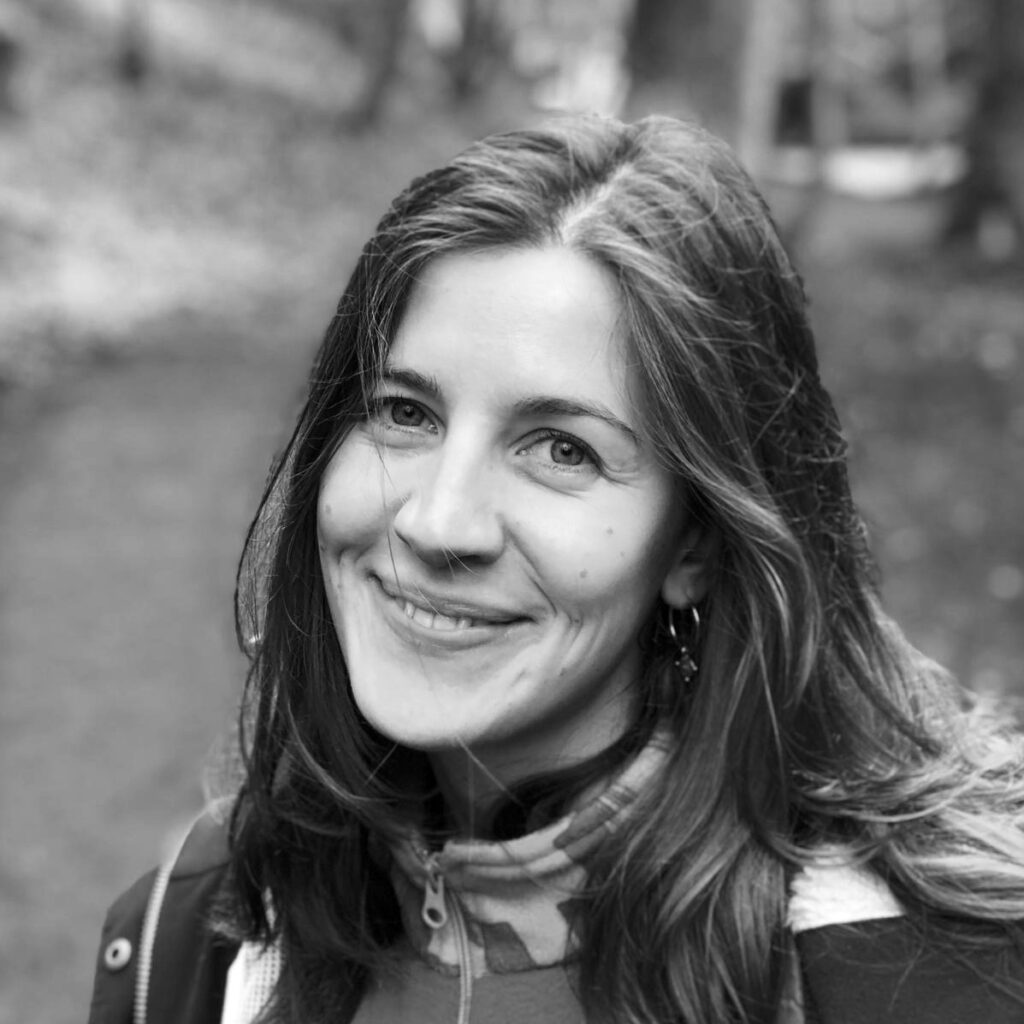
Amelia Kuch
Amelia is a circular economy policy expert. At the Ellen MacArthur Foundation, she leads the policy research unit, communicating cross-cutting policy insights to national and city governments and other key ecosystem players (including businesses and policy organisations). She is co-author of the “Universal Circular Economy Policy Goals” framework and a regular contributor to research on circular economy policy. In her work, Amelia champions the philosophy that mission-driven policy can accelerate the transition to the circular economy and deliver on broader social and environmental policy objectives – globally. Amelia has a PhD in International Development from the University of Edinburgh and is an alumna of the University of Oxford.
What is the role of cities in the transition to a circular economy?
Cities have always been centers of ideas and innovation: places where solutions to some of the world’s most pressing problems have been generated. However, it is also the case that cities are major sources of pollution, where most of the world’s resources are used and most of the world’s waste is created. How can cities make the most of the circular economy to eliminate the negatives and amplify the positives? In this presentation, you will learn about the three principles of circular economy and how they are already being applied in practice in cities around the world to generate positive social and environmental impacts.
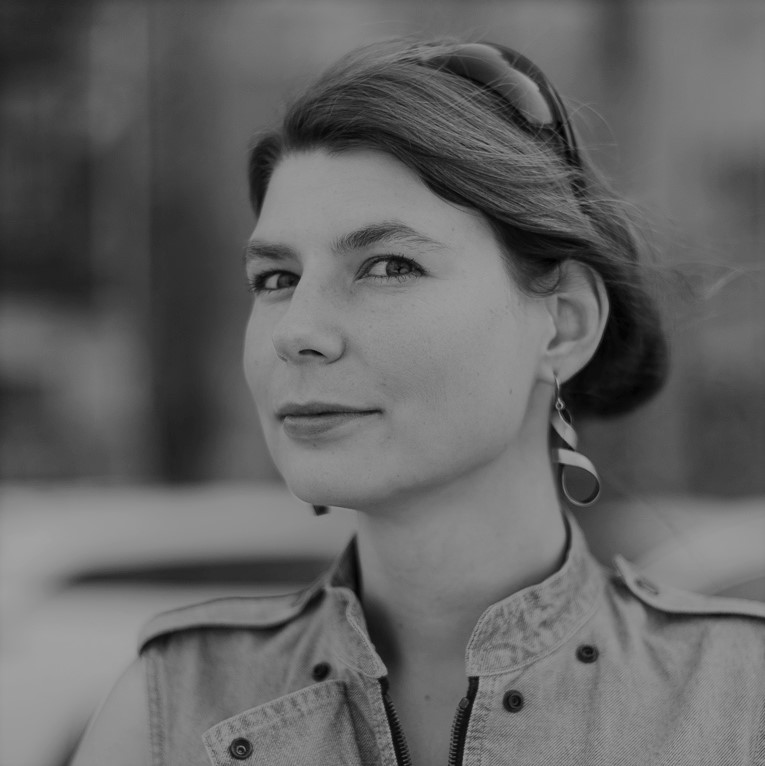
Joanna Kusiak
Sociologist, urban researcher. Co-author of the book “Chasing Warsaw. Socio-Material Dynamics of Urban Change after 1990” (2012, together with Monika Grubbauer) and “Sanative City. Architecture and Programming the Senses ”, (2014, together with Bogna Świątkowska). Author of the book “Warsaw-Chaos. Spatial Orders of Polish Capitalism” (2017).
Will Poland want to fit into a doughnut?
How to raise the standard of living, reduce inequalities while at the same time helping yourself and future generations? Who will be the driving force and who will rather want to put the brakes on the necessary overhaul of Poland? A society “on the make”, incessantly trying to catch up and aspiring to greater and more widespread prosperity, is reluctant to restrict consumption. People that are distrustful of the state and each other treat the common good with reserve. We will seek answers to the practical dilemmas of doughnut economics at the city and local government level.
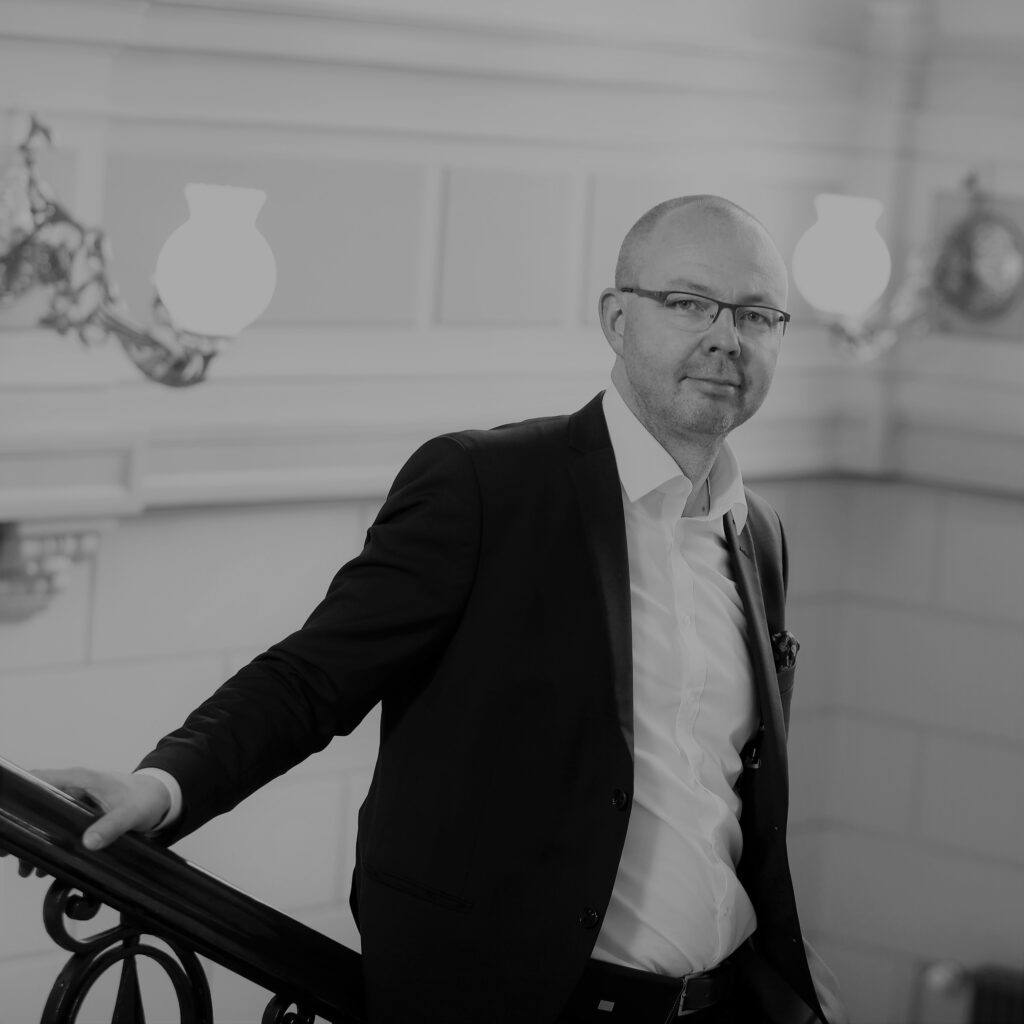
Timo Koivisto
Timo Koivisto has been the Mayor of Jyväskylä since 2015. Before that he was the Deputy Mayor of the City of Jyväskylä for 10 years. He has a long career in the public sector, including the position of special aide to the Minister of Finance and the Prime Minister. Mr Koivisto has a Master’s Degree in Law from the University of Turku.
„Lively, diverse, intense cities contain the seeds of their own regenaration – Jane Jacobs, The Death and Life Great American Cities.”
Where does the strength of our cities come from?
The crisis and related restrictions have forced city authorities to accelerate the implementation of innovations and solutions, including digitization, land use, public service delivery, among others. They caused a more careful look at environmental protection and accessibility to blue-green infrastructure. The drastically reduced mobility made the pandemic a test of the potential within cities, in their layout, in their intangible resources, in the businesses and organizations located within them, but above all – in their people. It has sparked individual resourcefulness in the areas of gainful employment, child and youth education, leisure activities, and personal development. Life based on face-to-face contacts had to be suddenly reorganized, meetings and travel had to be reduced, and at times, so did industrial production. The time of the pandemic also verified the functional completeness of the neighborhoods in which we live and the homes in which we stay. Finally, this time was a period of intense and often innovative self-help activities, in which the Internet and mobile technologies played a significant role. Which cities did best to survive this period and what factors made the urban fabric function properly? Wherein lies the strength of cities’ resilience to crises of various kinds?
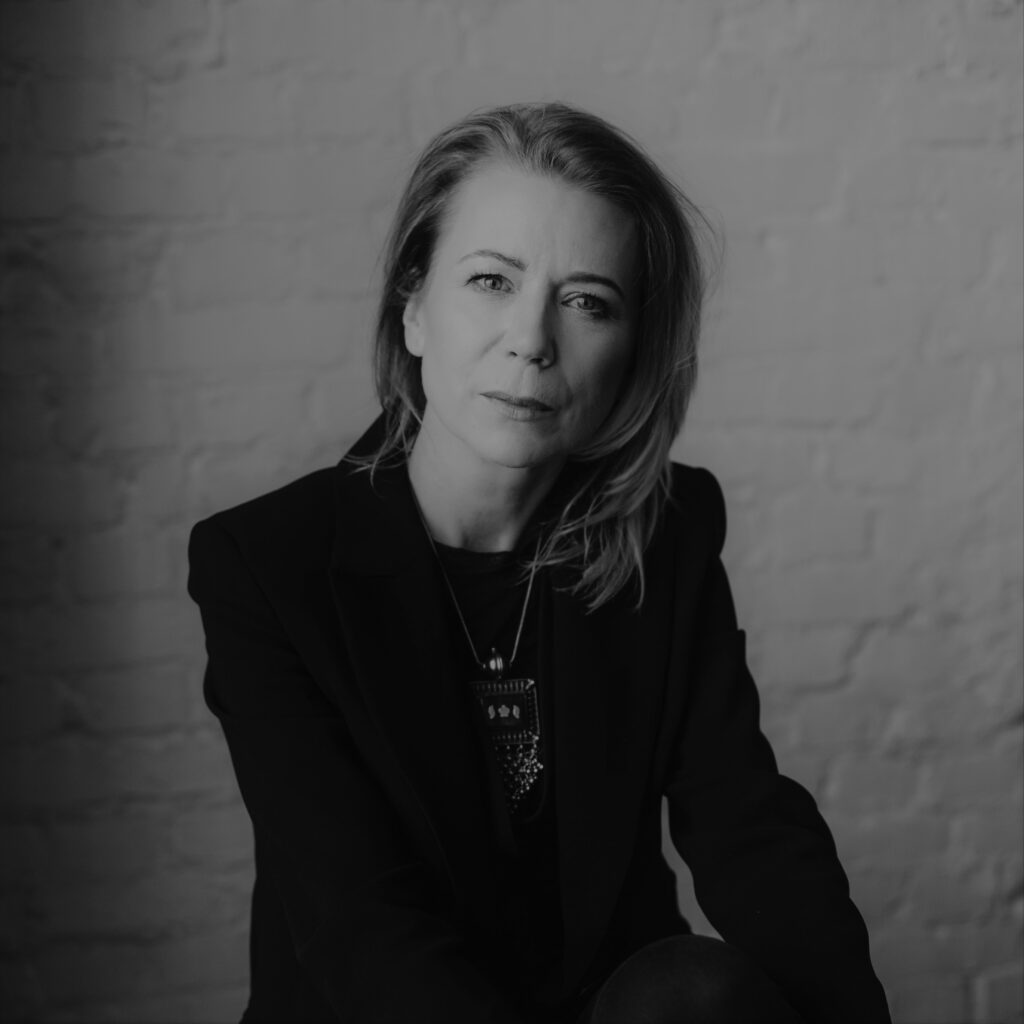
Iwona Matuszczak-Szulc
Iwona Matuszczak-Szulc – Head of City Development and Foreign Relations Department of the Poznan City Hall. She is responsible for contacts with foreign partners, updating and monitoring Development Strategy for the City of Poznan. She supervises issues related with rating of the City of Poznan and with cooperation with international rating agencies Fitch Ratings and Moody’s Investors Service as well work of “Think-Tanks” under the Mayor of Poznan, preparation of innovative conceptions, structures, models and solutions for problematic situations, preparation and organization of international conferences and projects. She coordinates strategic management of the City and participation of the City of Poznan in Urban Agenda for the EU. Coordinator of European project “Get into the swing of the City” dedicated to the creative generation Y. She is also an University lecturer. She is interested in use of innovative methods in solving complex problems and research projects as well long-distance running. She is an initiator and main organizer of City Development Forum.
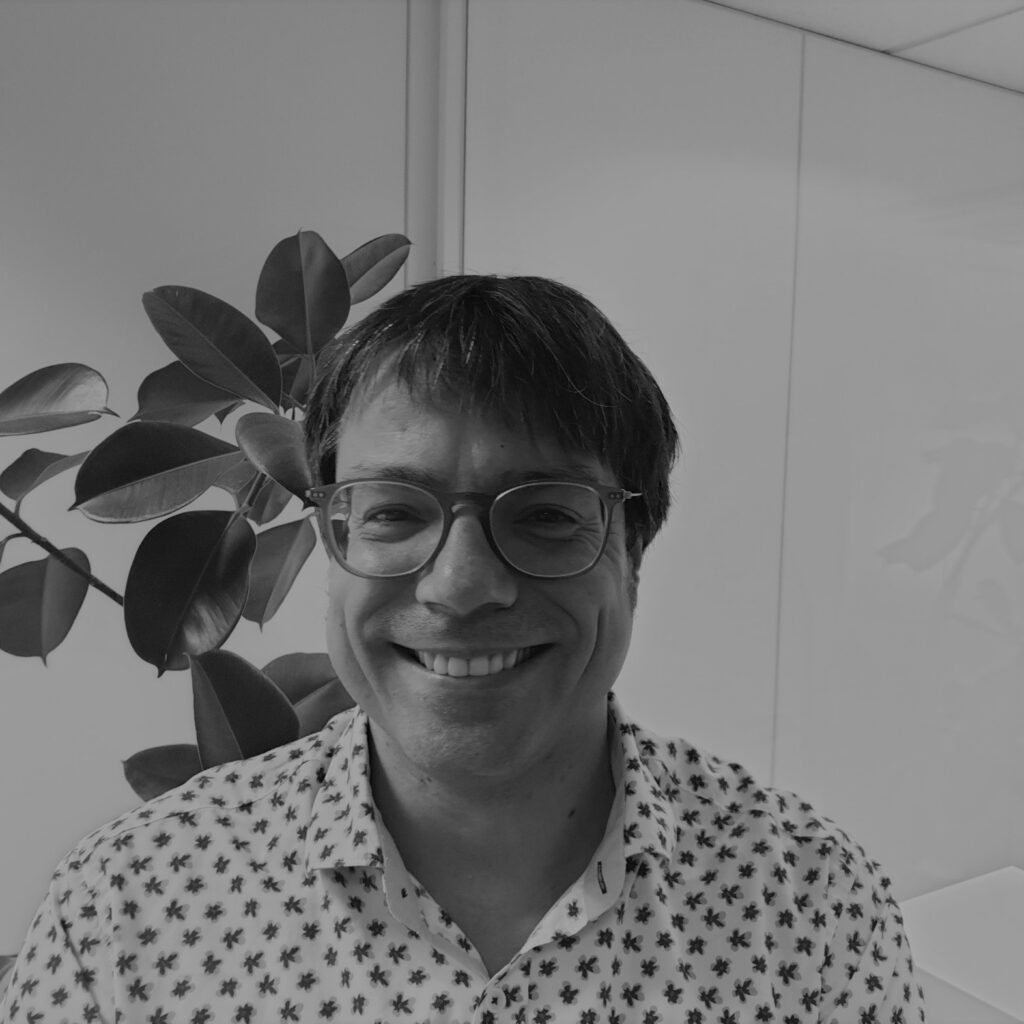
Xavi Matilla
The transformation of public space, Barcelona Superblock: new stage
The Superblock programme is taking a step ahead and becoming the street transformation model for the entire city, with the aim of reclaiming for citizens part of the space currently occupied by private vehicles.The goal is to create a healthy, greener, fairer and safer public space that promotes social relations and the local economy. Following small-scale initiatives carried out in areas such as Poblenou, Horta and Sant Antoni, Superblocks are now taking a leap in scale and pace. Barcelona City Council has conducted a detailed analysis of the city: citizen flows and mobility, neighbourhood facilities, green spaces, building and social fabric and so on. It is through this comprehensive approach that a road hierarchy has been created enabling some streets to be freed of road traffic and the creation of a network of green hubs and squares where pedestrians have priority.
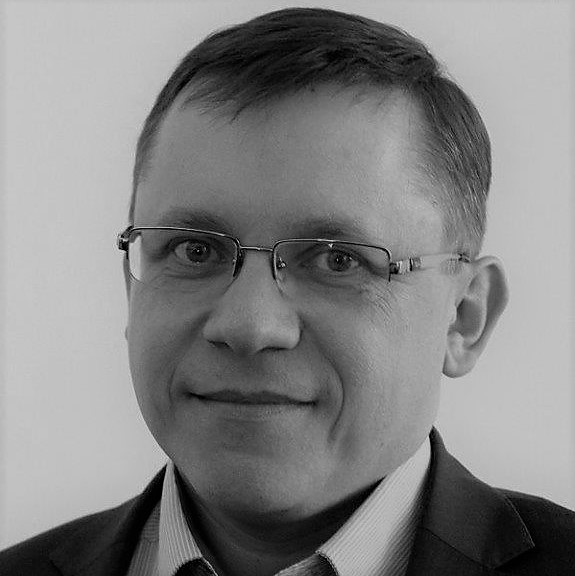
Cezary Mazurek
Cezary Mazurek – Plenipotentiary of the Director of the Institute of Bioorganic Chemistry of the Polish Academy of Sciences for the Poznan Supercomputing and Networking Centre. For over 20 years involved in the construction of the IT scientific infrastructure in Poland and the development of services for the information society. He has managed implementation of big projects: the Multimedia City Guide of Poznan, the dLibra system of digital libraries, the NABÓR recruitment system, and the scientific television PLATON TV. President of the Wielkopolska ICT Cluster. Author of over 100 publications.
City open to innovation in the era of digital transformation
In the digital age, data is the key enabler of social and commercial
activities. A large amount of data is created and held by governments.
By opening up data, governments can facilitate innovating businesses and
creating services that deliver social and commercial values. From our
point of view, as an ICT research and development center, the provision
of an open data processing infrastructure is the key driver for
multidimensional transformation of the city.Supported by such
infrastructure, all smart city stakeholders will be able to pursue their
social, scientific, economic or political goals in a sustainable manner.
The trend shall be complemented by developing open living lab spaces
across the city to engage the city residents in transformation
processes. See the presentation to find showcases of such activities in
Poznan.
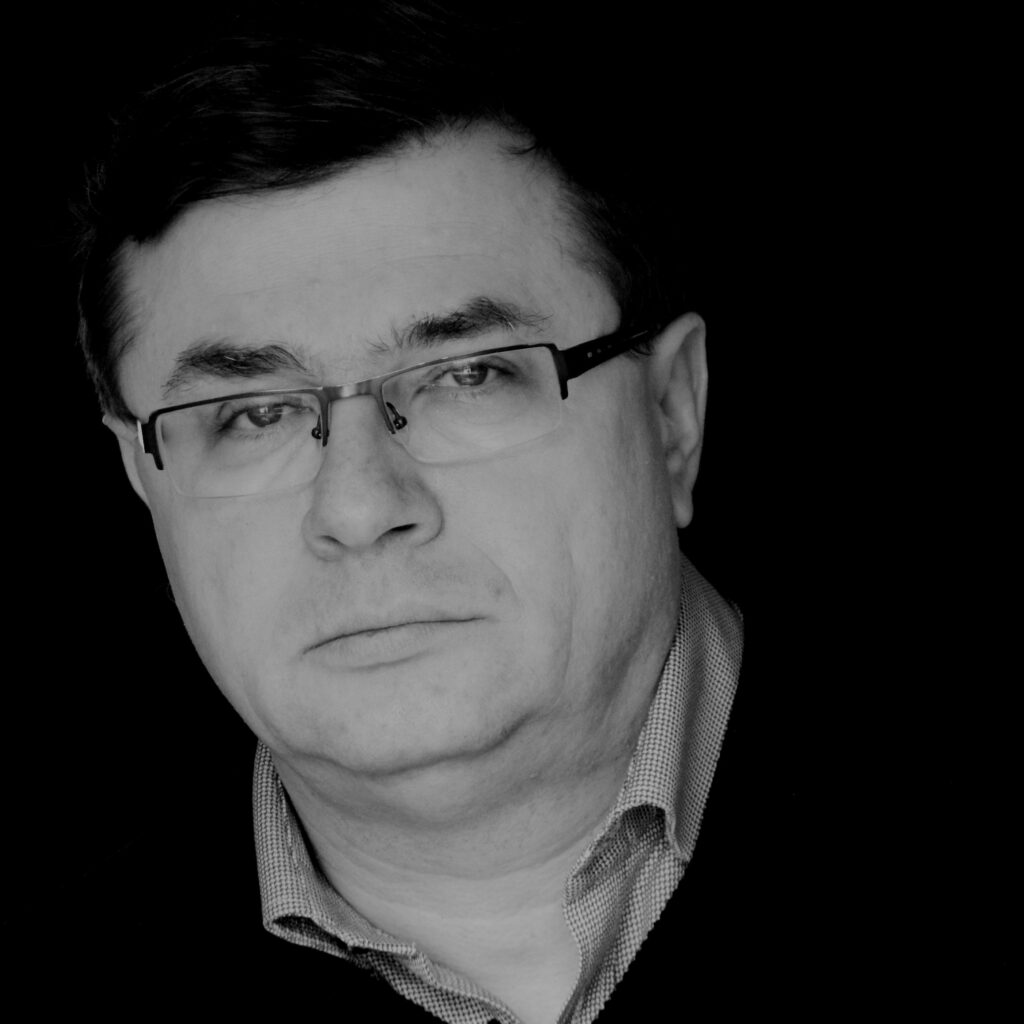
Rafał Matyja
Ph.D., professor at the University of Economics in Krakow, historian, regular contributor to the weekly “Tygodnik Powszechny”. Author of books, including: „Konserwatyzm po komunizmie” (“Conservatism after Communism”, 2009), „Rywalizacja polityczna w Polsce” (“Political rivalry in Poland”, 2013), „Wyjście awaryjne” (“Emergency exit”, 2018), “Miejski grunt. 250 lat polskiej gry z nowoczesnością” (“Urban Land. 250 Years of Poland Toying with Modernity”, 2021).
Will Poland want to fit into a doughnut?
How to raise the standard of living, reduce inequalities while at the same time helping yourself and future generations? Who will be the driving force and who will rather want to put the brakes on the necessary overhaul of Poland?
A society “on the make”, incessantly trying to catch up and aspiring to greater and more widespread prosperity, is reluctant to restrict consumption. People that are distrustful of the state and each other treat the common good with reserve. We will seek answers to the practical dilemmas of doughnut economics at the city and local government level.
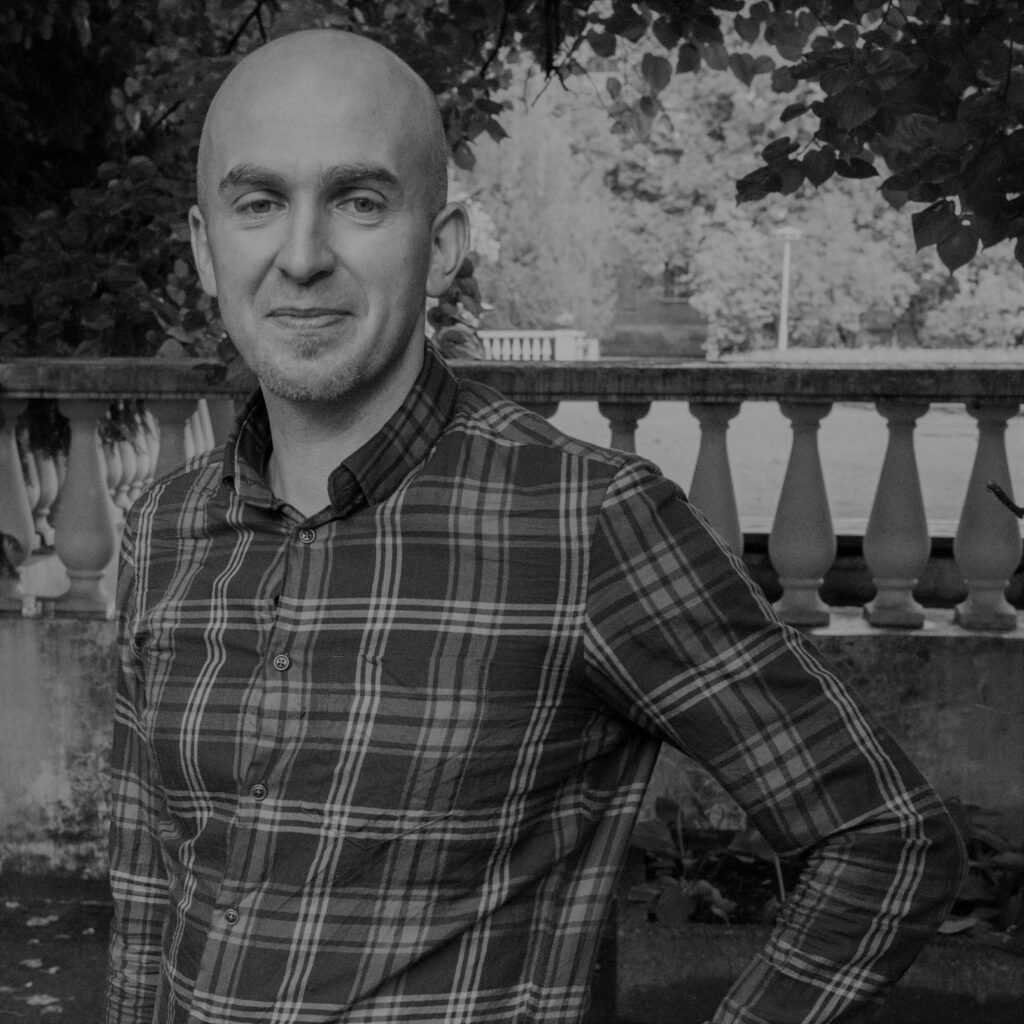
Ariel Modrzyk
Ariel Modrzyk, sociologist, PhD at Department of Sociology of Adam Mickiewicz University. An author of papers published in polish journals such as “Studia Socjologiczne”, “Kultura i Społeczeństwo”, “Ruch Prawniczy, Ekonomiczny i Socjologiczny” and others. His scientific interests are focused on sociology of daily life, sociology of economy, sociology of body, posthumanist sociology. An author of two monographs „Pomiędzy normatywizmem a realizmem. Od teorii uznania Axela Honnetha do radykalnie refleksyjnej krytyki społecznej” (Ha!art 2013) (Between Normativism and Realism. From Axel Honneth’s theory of Recognition to Radical Reflexive Social Critique) and „Społeczeństwo Marnotrawców? Funkcje i status normy niemarnowania żywności” (Nomos 2019) (Wasteful society? Functions and Status of the Norm of not Wasting Food).
Wanting things different. Self-imposed restraint as a path to sustainability in cities?
The debate will be taken by people associated with art, design, and social research, who support the slowdown, both in a personal and urban aspect. Mindfulness, weaving obligations, spending time with one another and closer relations are confronted with with competition, hyperconsumption, modern acceleration, or the global consumption of raw materials. During the debate, we will talk together about what it actually means that the city is developing and how we can detect it. We will also consider what we see as an opportunity to break such thinking about the development of cities, which equates them with economic, demographic, spatial or media growth. We will also consider how the popularizing idea of inverted growth could be manifested in Polish cities, and how it can be made not only an element of policies or strategies, but also of everyday habits and desires, building the sensitivity of residents to the goals and needs of personal development and development. cities would not be associated with stimulating consumption. Finally, we will also consider how to take care of urban justice in this utopia.
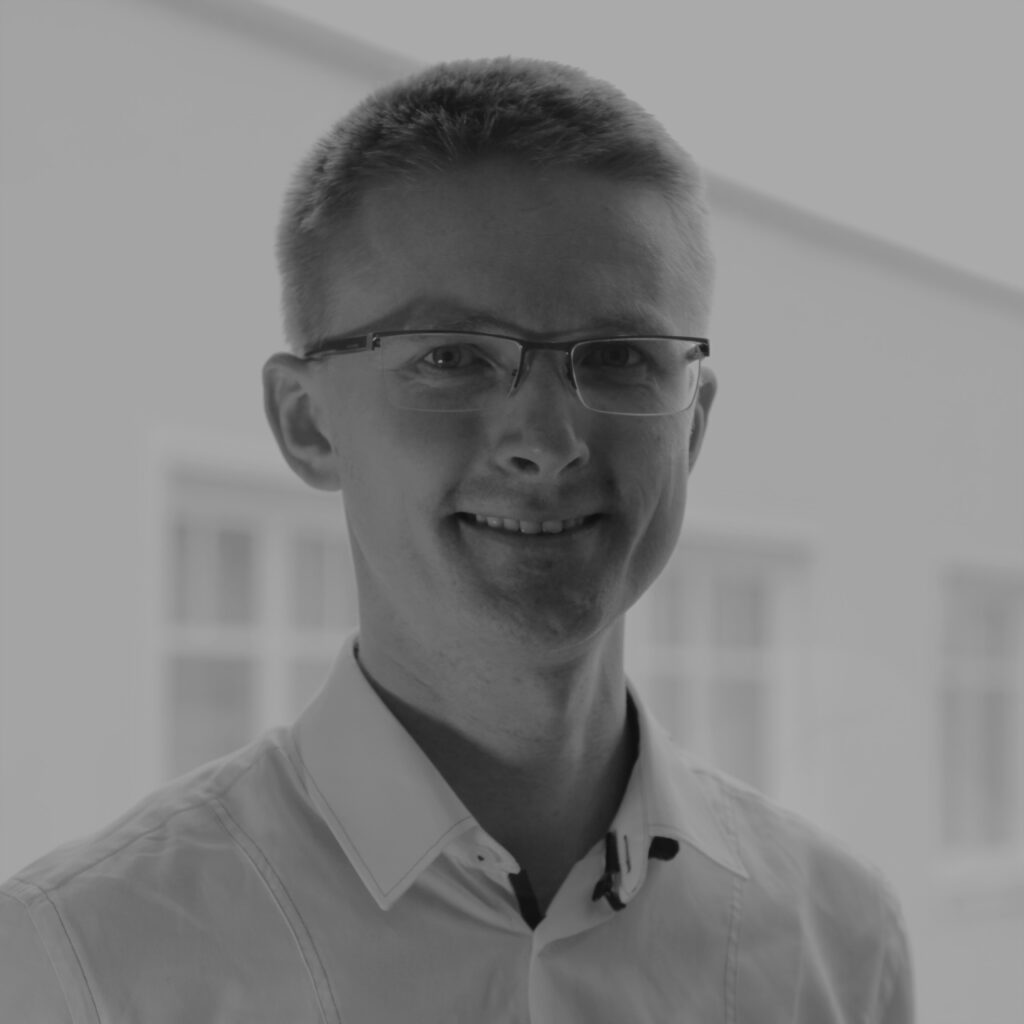
Adam Olszewski
In 2011 I founded Coworking ZOO, which we transformed into PSNC Future Labs living laboratories in 2020. While running the Future Labs, I focus on developing a local innovation ecosystem in the areas of smart city, education, health and social inclusion. I am inspired by people as well as business and social activities, measured by indicators other than just profit. In science-business cooperation, I strive to do meaningful things with interesting partners who are not afraid to break the status quo. I write and run EU projects, mainly in the field of practical data use, high power computing, virtual and augmented reality as well as CFD, MES and predictive simulations. I acquired over PLN 50 million for technological and social activities, e.g. Shop4cf, I4MS-growth, WINS, SymbIoTe, MIDIH, StartUpIT, EDIH HPC4Poland, Spin-Tech … I publish from time to time. I am in the management boards of the Wielkopolski Klaster Teleinformatyczny /Greater Poland ICT Cluster/ and the European Network of Living Labs. I am a graduate of the Adam Mickiewicz University, Poznań University of Technology and the Science-Management-Commercialization programme at Stanford University.
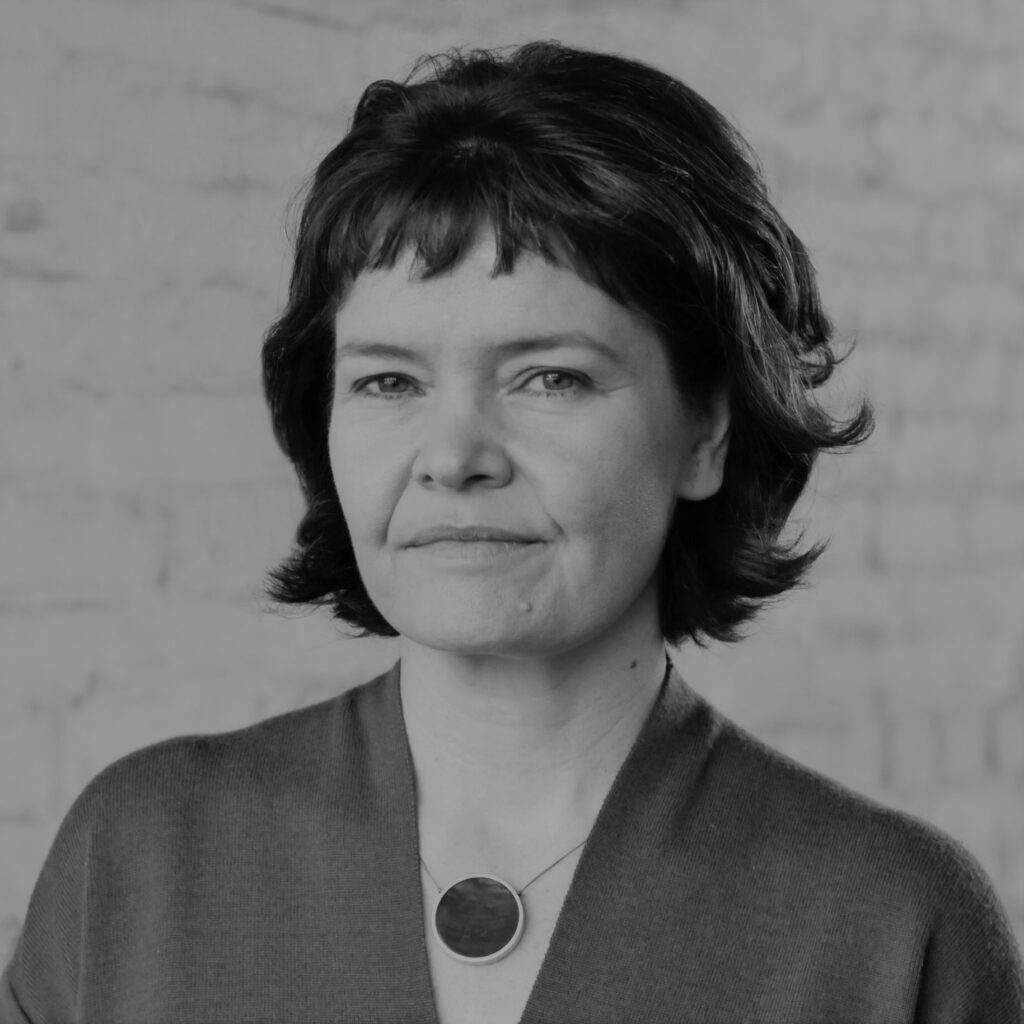
Kate Raworth
Kate Raworth (sounds like ‘Ray-worth’) is a renegade economist focused on making economics fit for 21st century realities. She is the creator of the Doughnut of social and planetary boundaries, and co-founder of Doughnut Economics Action Lab. Her internationally best-selling book Doughnut Economics: seven ways to think like a 21st century economist has been translated into over 20 languages and has been widely influential with diverse audiences, from the UN General Assembly to Pope Francis to Extinction Rebellion. Kate is a Senior Associate at Oxford University’s Environmental Change Institute, where she teaches on the Masters in Environmental Change and Management. She is also Professor of Practice at Amsterdam University of Applied Sciences. Over the past 25 years, Kate’s career has taken her from working with micro-entrepreneurs in the villages of Zanzibar to co-authoring the Human Development Report for UNDP in New York, followed by a decade as Senior Researcher at Oxfam. She holds a first class BA in Politics, Philosophy and Economics, and an MSc in Economics for Development, both from Oxford University. She is a member of the Club of Rome and currently serves on the World Health Organisation Council on the Economics of Health for All. Kate has written extensively for media including The Guardian, The New Statesman, Newsweek.com, and Wired.com, and has contributed to many radio programmes including for BBC Radio 4, The World Service, ABC and NPR, as well as television including CNN World News, Al-Jazeera, BBC, ITV and CBC. The Guardian has named her as “one of the top ten tweeters on economic transformation”.
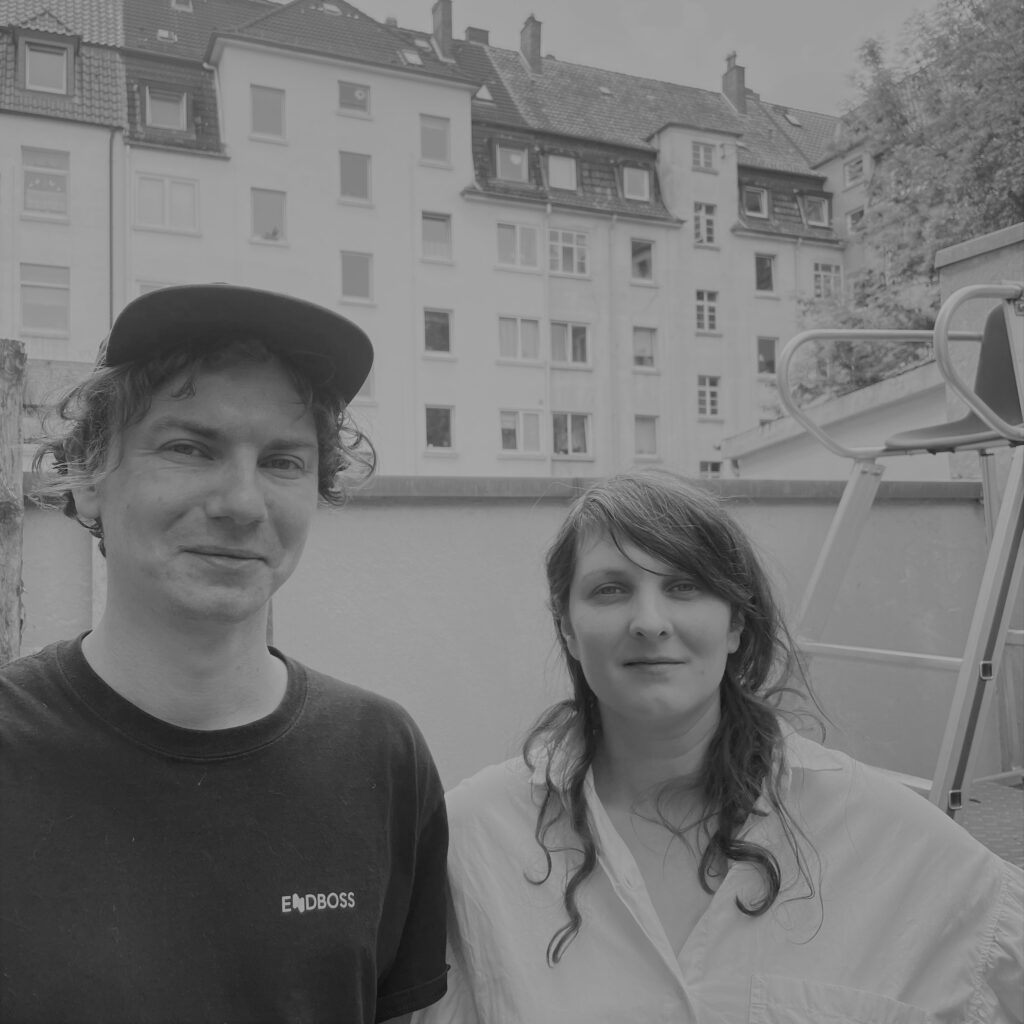
Ivana Rohr & Robin Höning
Ivana Rohr and Robin Höning are from endboss – an interdisciplinary studio for spatial questions and answers at all scales, based in Hanover Germany. While Ivana studied creative writing and also holds a degree in fine arts, Robin is an architect with master’s degree in architecture and city development. Together with an interdisciplinary team at endboss they try to bring artistic and urban practices together for the cause of finding answers to questions that nobody asked. Trying to avoid routines and repetitive methodolical shemes, they are constantly working on their maneuverability in uncertain terrains. Because they are convinced that unpredictability and the unprogrammed are – or rather should be – two decisive factors in our planning and concepts of cohabitation.
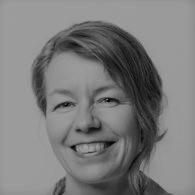
Tanja Oksa
Tanja Oksa works in business development unit of the City of Jyväskylä. Her unit, Business Jyväskylä, enhances the businesses in Jyväskylä on many levels. Urban development platforms and ecosystem work are part of Business Jyväskylä’s know how and way of doing. Ecosystems related to health&wellbeing and industry renewal as well as know-how, talent boost and sustainabily issues are related to Tanja’s work. Tanja as a liasoin manager operates on many interfaces and surfaces with local, national and international networks. Tanja is a Msc from environmental technology which is an excellent background for generalistic work that she does nowdays.
Kangas – a living fabric of business and people
In this presentation the curtain of one urban development platforms of Jyväskylä will be opened. Kangas used to be a paper mill area right next to city center. Now it is evolving to be a home for more than 5000 people and roughly 2100 workplaces by year 2040. Heart, Feet, Sustainability and Green are the main themes of Kangas. How these themes are part of concrete planning, city structure and management will be explained.
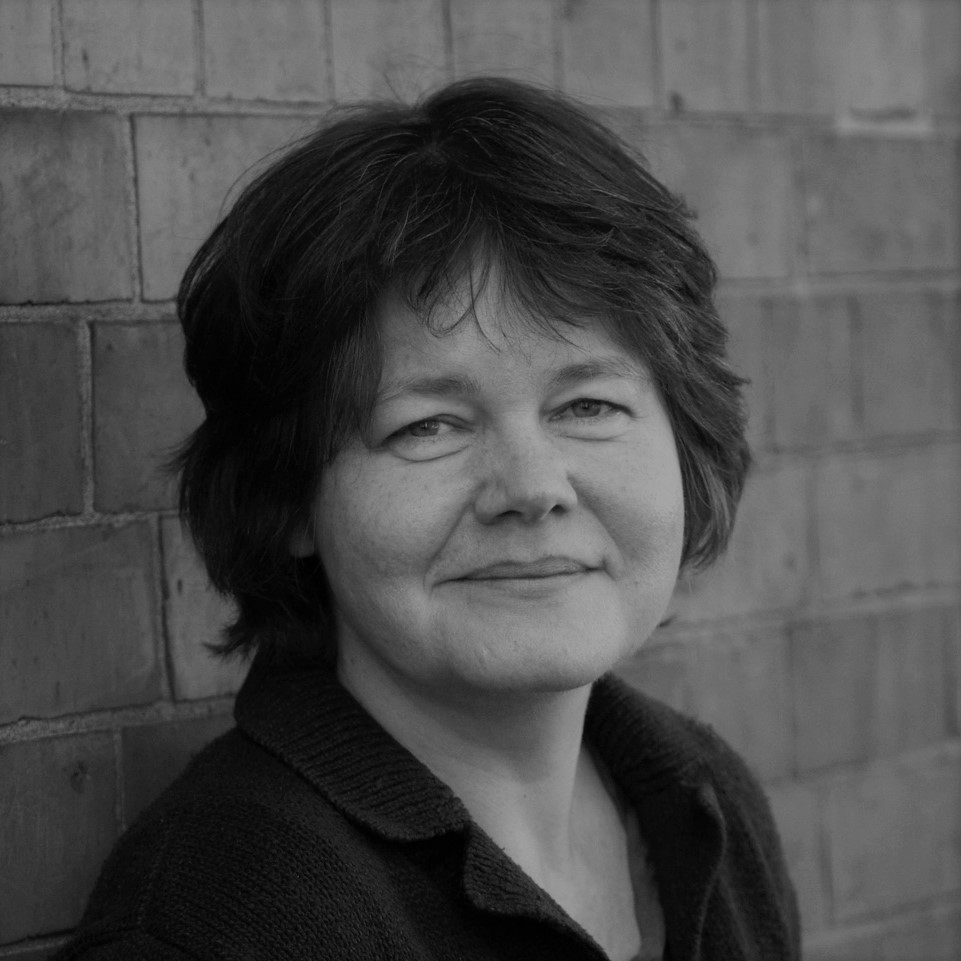
Carolyn Steel
Carolyn Steel MA (Cantab) RIBA. Carolyn is a leading thinker on food and cities. A British architect, author and academic, she wrote the award-winning Hungry City: How Food Shapes Our Lives (2008) and Sitopia: How Food Can Save the World (2020). Her concept of sitopia, or food-place (from the Greek sitos, food + topos, place) has gained broad recognition across a wide range of fields in design, ecology, academia and the arts. A director of Kilburn Nightingale Architects in London, Carolyn studied at Cambridge University and has since taught at Cambridge, London Metropolitan, Wageningen and Slow Food Universities and at the London School of Economics. In 2020-21, she will be a Research Fellow at Aeres University in the Netherlands. Carolyn is in international demand as a speaker and her 2009 TED talk has received more than one million views. In August 2020, she was featured in a special edition of BBC Radio 4’s The Food Programme.
Sitopia
Living in a modern city like London or Poznan, it’s easy to believe that we’ve solved the problem of how to eat. We take it for granted that, if we walk into a restaurant or supermarket, food will be there, having arrived as if by magic from somewhere else. Yet, as the Covid pandemic has reminded us, nothing could be further from the truth. Indeed, the hidden costs of the way we now eat – from climate change, mass exctinction, soil erosion, deforestation, water depletion, pollution, diet-related disease and zoonotic pandemics – are destroying us and our planet. So what can we do?
I believe that by valuing food once more and bringing it to the heart of our thinking, we can rebalance our relationship with nature to build more equitable and resilient societies. My term sitopia, or food-place (from the Greek sitos, food + topos, place) describes this approach. The primary focus of sitopia is to rethink the urban-rural relationship, the basic dynamic of human civilisation. Those of us who live in cities call ourselves ‘urban’, but if our food, energy and other materials come from elsewhere, to what extent do we actually dwell in the city? I call this the ‘urban paradox’ – the fact that cities could not exist without countryside, yet few of us living in cities today see or think about the landscapes that sustain us.
Today, we urgently need to rethink the way we live. By thinking and acting through food, we can learn how to live in balance with nature, build more resilient, fairer societies, revitalise our cities and readjust the urban-rural relationship. Most importantly, we can use food to reimagine our idea of a good life. Food is the great connector: by thinking, not just about food, but through it, we can gain vital insights into the structures of our lives, and change them for the better.
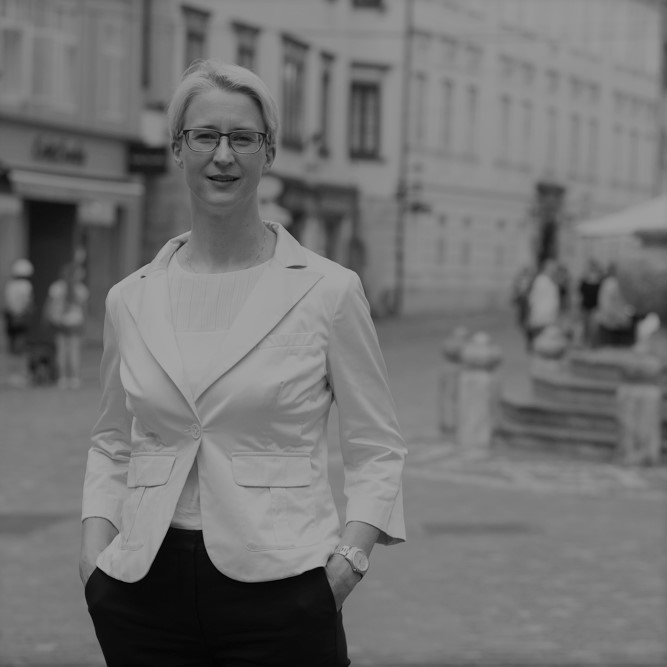
Zala Strojin Božič
Zala Strojin Božič has been employed in the City of Ljubljana since 2002. With a scientific master’s degree in the field of environmental protection, she primarily covered the field of soil pollution. After 2010 she also worked on eradication of invasive alien species and the environmental management system EMAS. She has been working as a circular economy manager for the City of Ljubljana since 2018 and is primarily focusing on how to spend less and more efficiently city’s natural resources, promoting reuse and co-sharing, and adopting long-term sustainable and circular solutions with the involvement of citizens.
Ljubljana’s circular journey
In Ljubljana we are convinced that the shift from linear to circular economy has a significant impact not only on production but also on the whole social order and our mentality. We inform, educate and encourage all our public employees to behave sustainably, in a circular manner and take green decisions. At the same time, we are building interdisciplinary value chains, having in mind economic, social and environmental benefits. We are introducing responsible management of all resources (from financial to human) and strengthening innovation and competitiveness in all areas of the city’s management. A systemic, holistic, strategic approach is the one Ljubljana has been following for more than 14 years now and, with this approach, the City is repeatedly confirming that by adopting long-term sustainable and circular solutions with the involvement of citizens, we and our environment come out as winners.
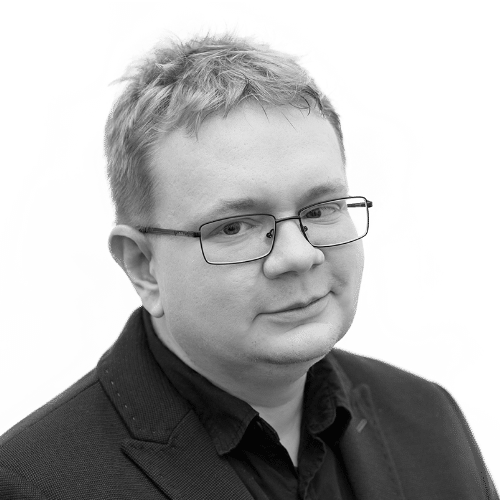
Michał Sutowski
Political scientist, graduate of the College of Inter-area Individual Studies in the Humanities and Social Sciences at the University of Warsaw, translator, journalist. Member of Krytyka Polityczna team and the Institute for Advanced Study. Co-author of extended interviews with Agata Bielik-Robson, Ludwika Wujec and Agnieszka Graff. He writes about political economy, the approaching apocalypse of the EU and more. He does interviews. Long ones.
Will Poland want to fit into a doughnut?
How to raise the standard of living, reduce inequalities while at the same time helping yourself and future generations? Who will be the driving force and who will rather want to put the brakes on the necessary overhaul of Poland?
A society “on the make”, incessantly trying to catch up and aspiring to greater and more widespread prosperity, is reluctant to restrict consumption. People that are distrustful of the state and each other treat the common good with reserve. We will seek answers to the practical dilemmas of doughnut economics at the city and local government level.
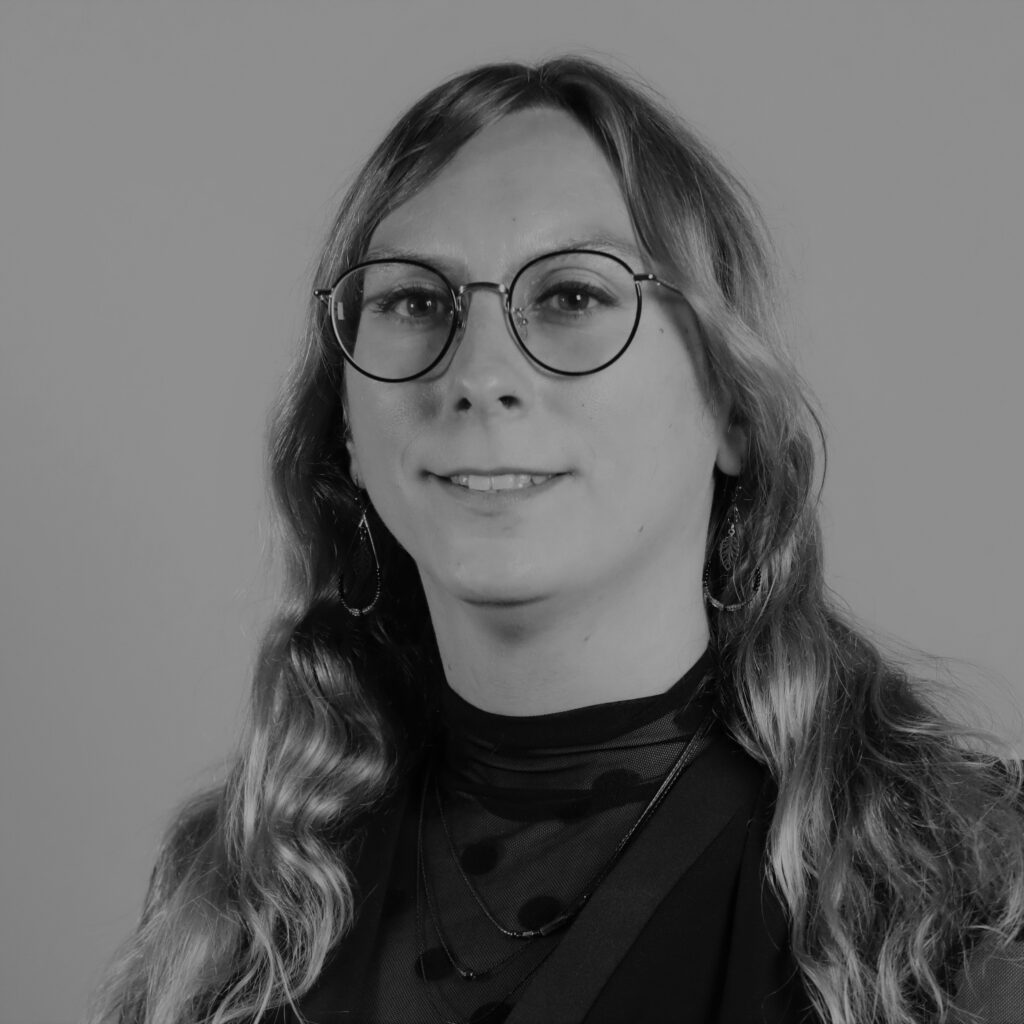
Sélène Tonon
City councillor of Rennes for museums, libraries, and gaming culture. She began as a software engineer and shifted towards politics when she volunteered for feminist and LGBTQI+ organizations. Nowadays, as her job, she teaches programming classes to future game designers. She wants to make cultural places welcoming for everyone. As soon as she got elected, she made museums and libraries free.
Developing of creatives off-site mediations.
Due to the covid 19 pandemics and the successive lockdowns in France, the cultural industries need to invent new ways to keep the link with the public. So did the Rennes Museum of Fine Arts. Mainly, it was an opportunity to rethink the mediation. The Museum developed digital mediation, use of social networks. Moreover, it was an opportunity for the Museum to develop creatives off-site mediations.
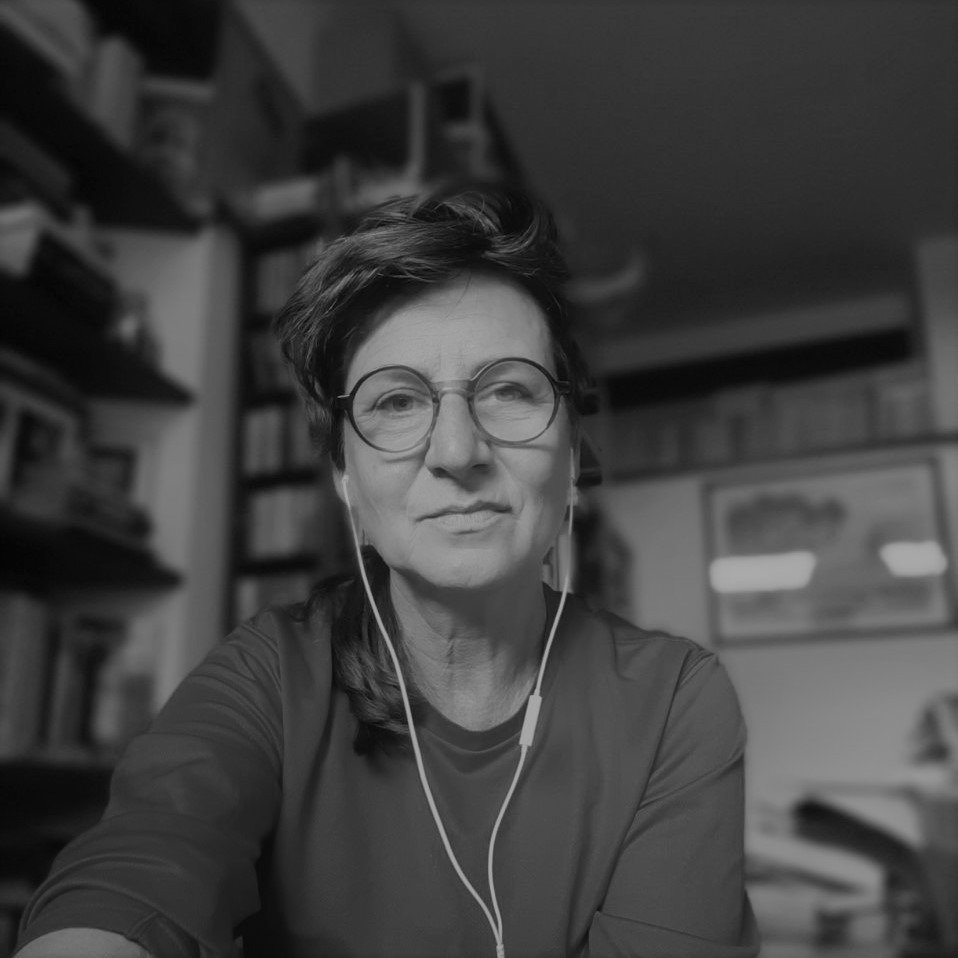
Bogna Świątkowska
Bogna Świątkowska – originator, founder and president of the board of the Bęc Zmiana Foundation, with whom she has implemented dozens of projects devoted to public space, architecture and design, as well as competitions addressed to architects and designers of the young generation. Initiator and editor-in-chief of the journal “Notebook for 6 weeks“. Previously, she was the editor-in-chief of the first pop-culture monthly magazine entitled Machina (1998–2001), author of numerous texts, interviews, radio and television programs devoted to contemporary popular culture. She received a scholarship of the Minister of Culture and National Heritage (2006/07). Member of the Social Culture Council at the Mayor of the Capital City of Warsaw Warsaw (2012-2015), Member of the Council of Architecture and Public Space of the Capital City of Warsaw (2015-2018), and a member of the Expert Team for Local Culture at the National Center for Culture (2015-2017).
„Lively, diverse, intense cities contain the seeds of their own regenaration – Jane Jacobs, The Death and Life Great American Cities.”
Where does the strength of our cities come from?
The crisis and related restrictions have forced city authorities to accelerate the implementation of innovations and solutions, including digitization, land use, public service delivery, among others. They caused a more careful look at environmental protection and accessibility to blue-green infrastructure. The drastically reduced mobility made the pandemic a test of the potential within cities, in their layout, in their intangible resources, in the businesses and organizations located within them, but above all – in their people. It has sparked individual resourcefulness in the areas of gainful employment, child and youth education, leisure activities, and personal development. Life based on face-to-face contacts had to be suddenly reorganized, meetings and travel had to be reduced, and at times, so did industrial production. The time of the pandemic also verified the functional completeness of the neighborhoods in which we live and the homes in which we stay. Finally, this time was a period of intense and often innovative self-help activities, in which the Internet and mobile technologies played a significant role. Which cities did best to survive this period and what factors made the urban fabric function properly? Wherein lies the strength of cities’ resilience to crises of various kinds?
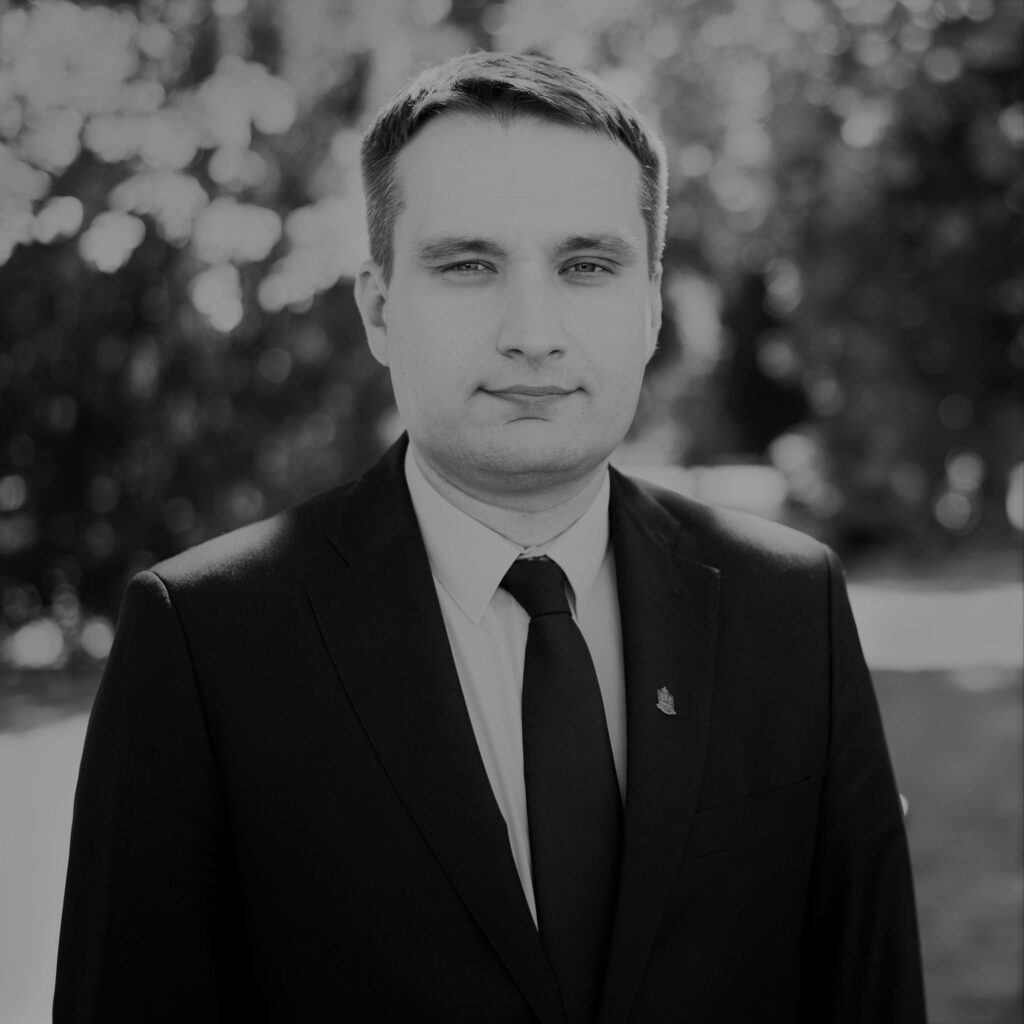
Mariusz Wiśniewski
Mariusz Wiśniewski, Deputy Mayor of Poznań. He graduated from the Faculty of Political Science and Journalism and the Faculty of Law of the Adam Mickiewicz University in Poznan as well from the School for Young Social and Political Leaders in Warsaw. Former Vice President of the Development and Promotion Fund of the Wielkopolskie Voivodship S.A and former member of the Advisory Team of the Voivod of the Wielkopolskie Voivodship – Piotr Florek.
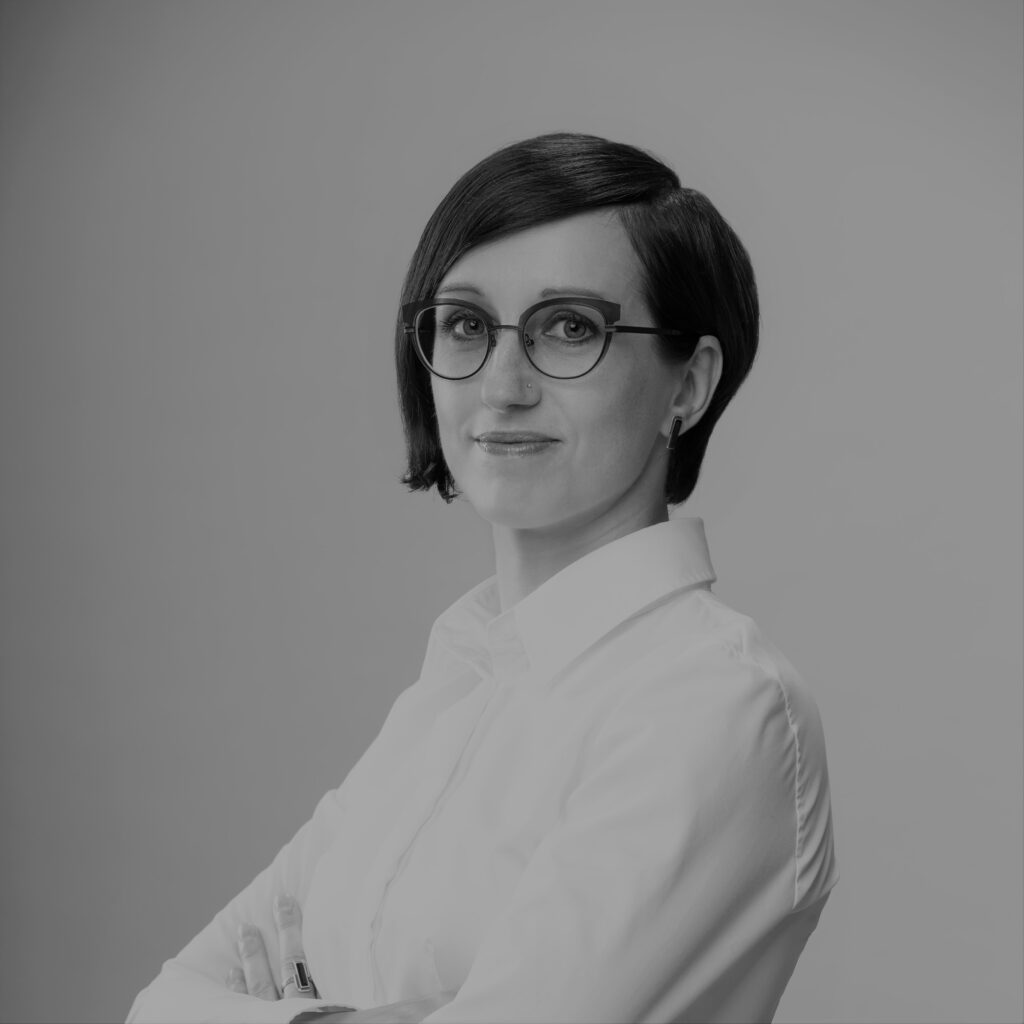
Aleksandra Zaława-Borowiak
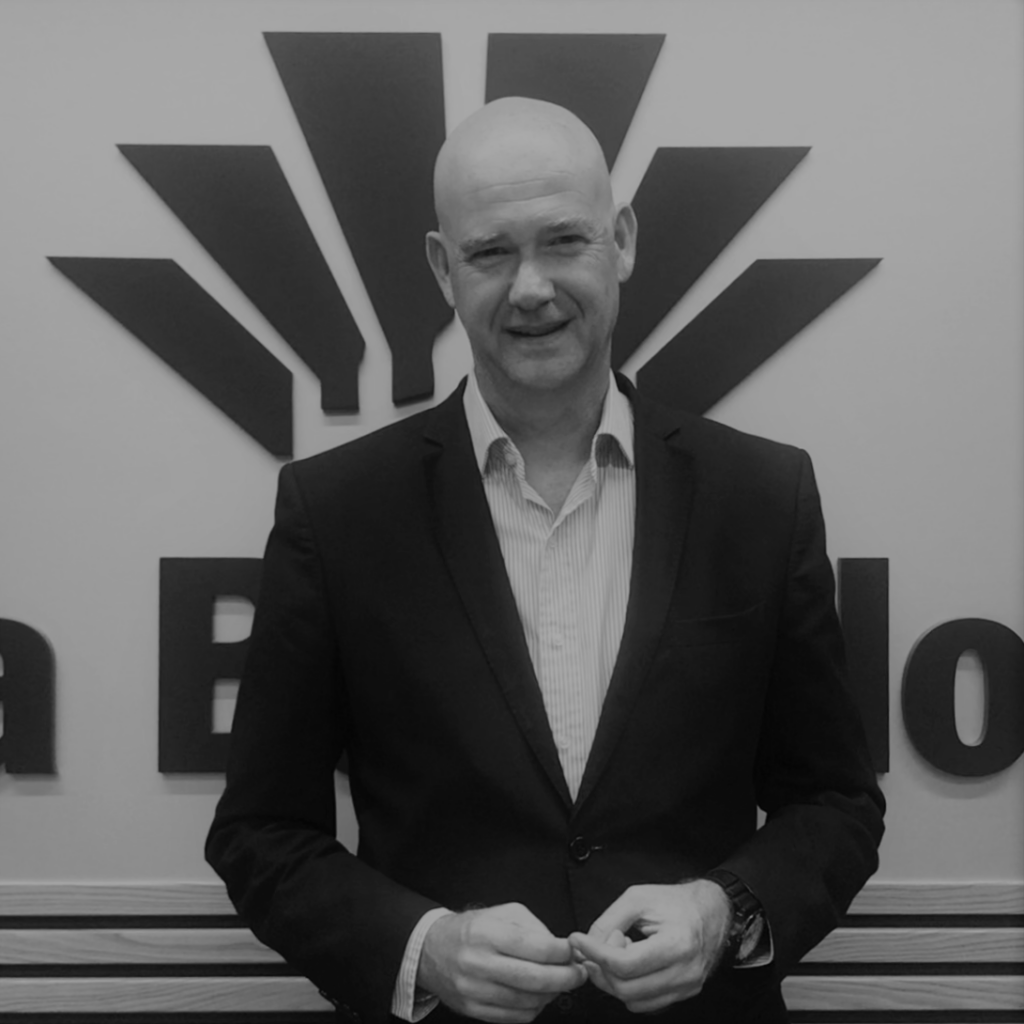
Ricard Zapatero
Ricard Zapatero is member of the Management Board of Fira Barcelona, and also Director for International Business. He is the actual President of Emeca, the European Major Exhibitions Centers association. He has been in the Exhibition industry for more tan 20 years, and being involved in the organization of more than 500 exhibitions. He organizes events and exhibitions not only in Europe, but also in many countries of America and Asia. He has also been designing and managing exhibition centers in 12 different countries, collaborating directly with city governments and state administrations to develope best interactivity among exhibition venues and cities needs.
Resilient cities – how do trade fairs fit into their identity?
Trade fairs have always had a city-forming character. Their establishment and development was associated with a growing importance of the city in the national and often international arena. They were often called a window to the world, as their main function was related to international cooperation, prestige, and often testified to more than simply the material status of the city in which they were held. The presence of trade fairs directly led to the development of the tourism industry in the city, encompassing hotels, catering, and trade. The city was attractive to domestic and foreign tourists, which resulted in considerable benefits for its inhabitants. During the last 2 years of the pandemic, the trade fair industry that was one the most significantly impacted, as it relied on face-to-face meetings, which were limited to a necessary minimum worldwide. Its further development was in question. The trade fair market began to shrink as some of the events that have moved over to the Internet during the pandemic do not intend to return to real-life spaces even after the pandemic has passed. Currently, as we are starting to recover from lockdown, trade fairs have to seemingly define their field of activity from the ground up. They can once again become a city-forming factor, provided that they adapt their business model to the current expectations and needs of the environment. They can once again have an impact on cities by protecting them from the effects of the recent crisis.
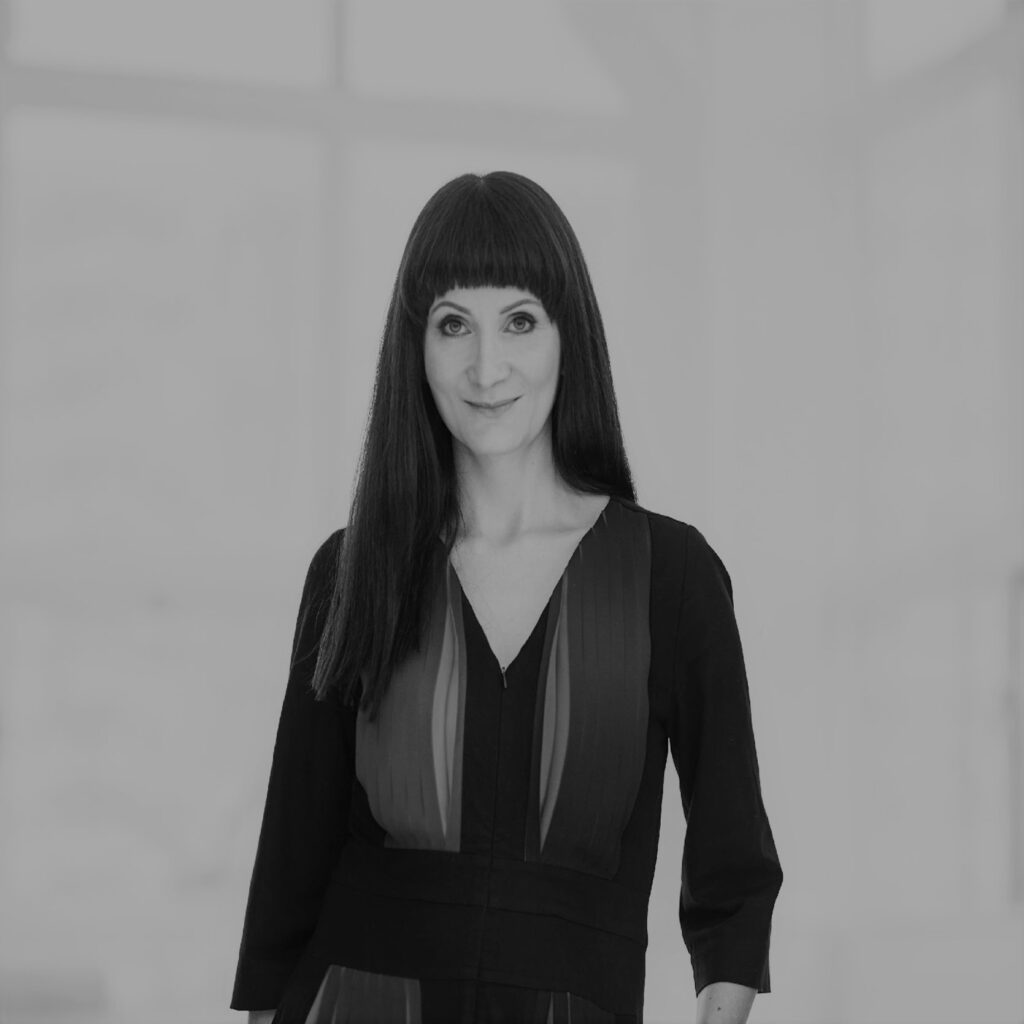
Anna Wróblewska
Resilient cities – how do trade fairs fit into their identity?
Trade fairs have always had a city-forming character. Their establishment and development was associated with a growing importance of the city in the national and often international arena. They were often called a window to the world, as their main function was related to international cooperation, prestige, and often testified to more than simply the material status of the city in which they were held. The presence of trade fairs directly led to the development of the tourism industry in the city, encompassing hotels, catering, and trade. The city was attractive to domestic and foreign tourists, which resulted in considerable benefits for its inhabitants. During the last 2 years of the pandemic, the trade fair industry that was one the most significantly impacted, as it relied on face-to-face meetings, which were limited to a necessary minimum worldwide. Its further development was in question. The trade fair market began to shrink as some of the events that have moved over to the Internet during the pandemic do not intend to return to real-life spaces even after the pandemic has passed. Currently, as we are starting to recover from lockdown, trade fairs have to seemingly define their field of activity from the ground up. They can once again become a city-forming factor, provided that they adapt their business model to the current expectations and needs of the environment. They can once again have an impact on cities by protecting them from the effects of the recent crisis.
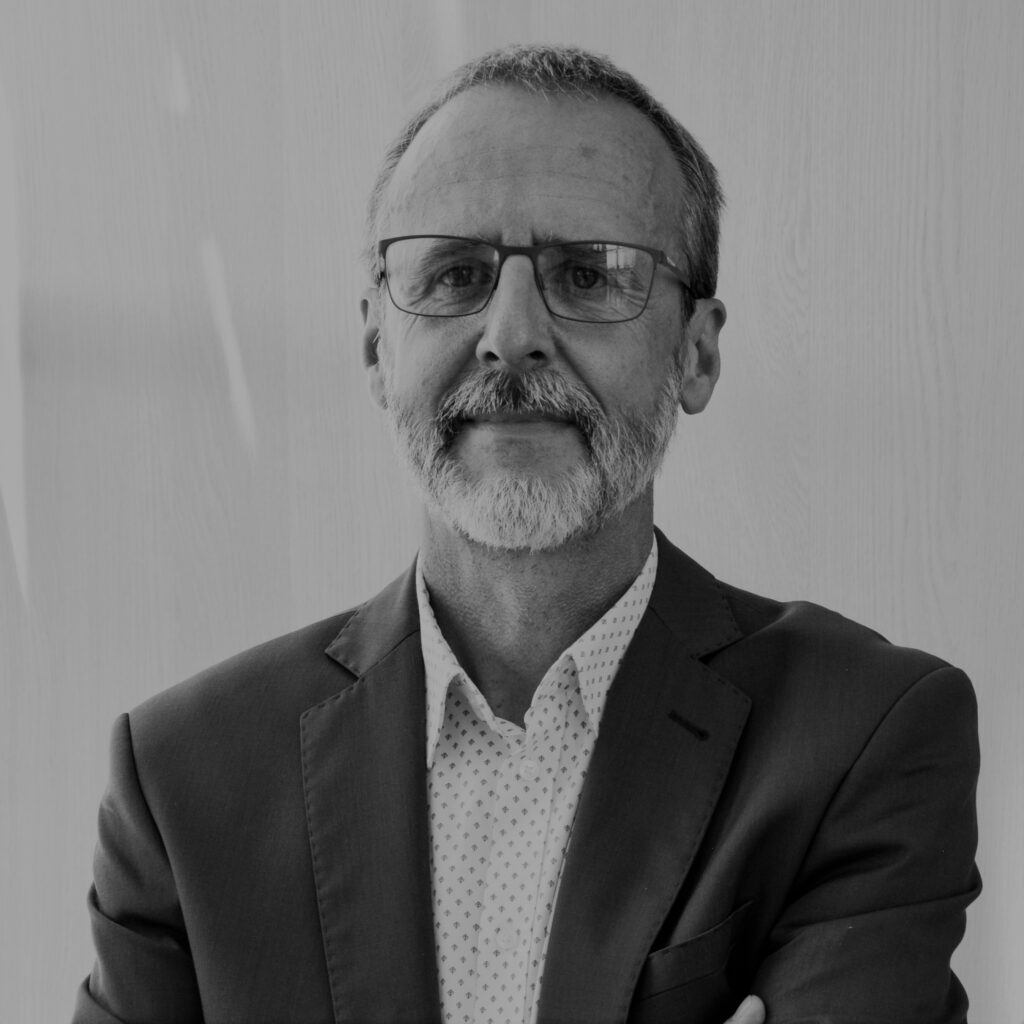
Jarosław Zawadzki
He is responsible for introducing the Address System Module in 2008. This application has improved the assignment of ordinal numbers and the record keeping of street names and ranges in the Poznań area. He supported the organization of the local Spatial Information Infrastructure hub. Since 2016, he has been the Deputy Director for the Spatial Information System. His team built Poland’s first integrated and accessible 3D model for the entire city. The 3D model has been recognized and awarded several times by specialists and users. Currently, he manages works related to the modernization of the City of Poznań Spatial Information System and the development of a digital base of urban greenery.